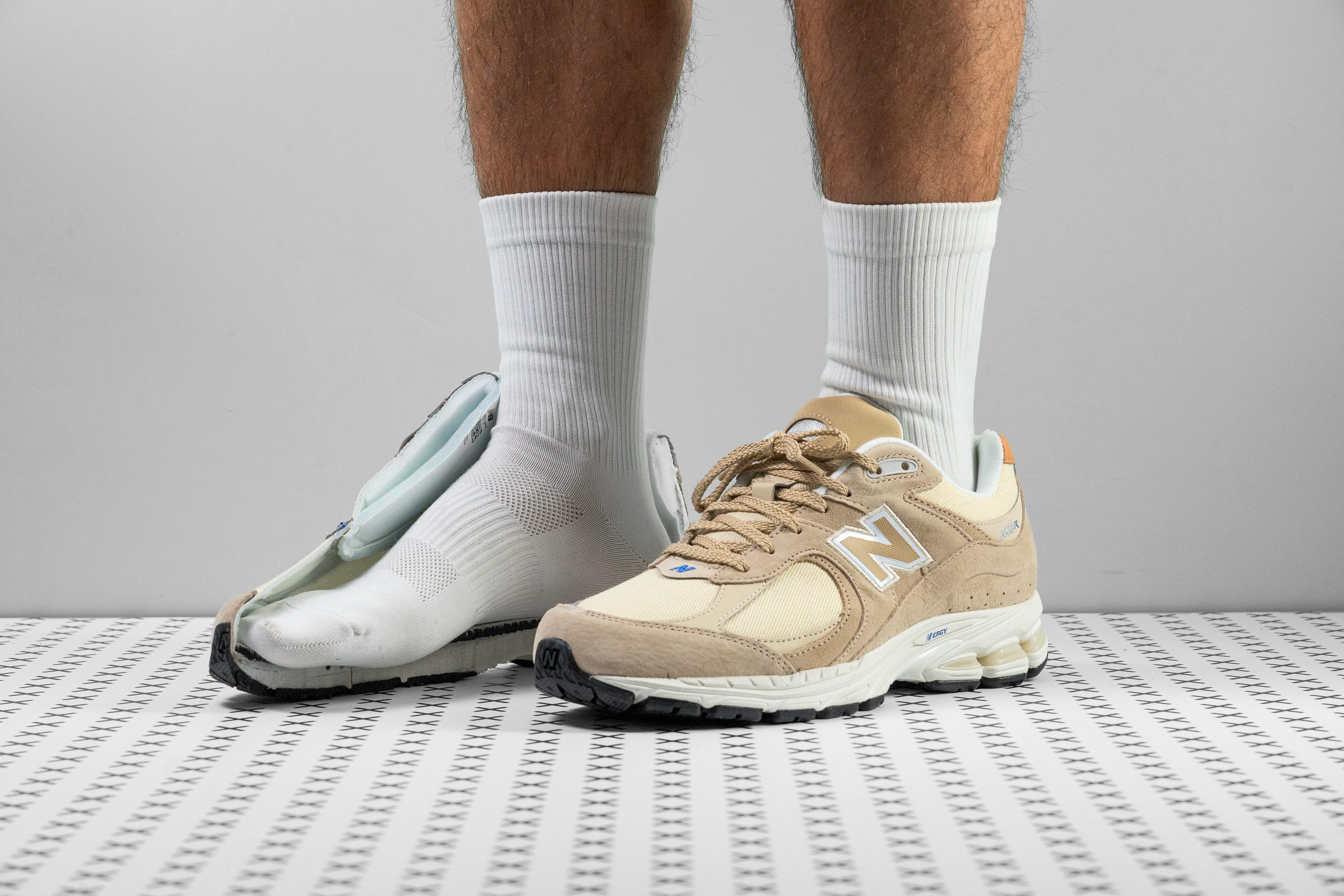Our verdict
- Our top pick in best New Balance sneakers
- Our top pick in best dad shoes
Pros
- Comfortable for all-day wear
- Protective cushioning technologies
- Durable upper materials
- Snug and supportive fit
- Reliable arch support
- Stable platform
- Grippy, running-inspired outsole
- Feels lightweight with a padded interior
- Stylish classic look that matches many outfits
Cons
- Not for wide feet
- Pricey
Audience verdict
- Top 16% most popular sneakers
Comparison
The most similar sneakers compared
+ + Add a shoe | |||||
|---|---|---|---|---|---|
| Audience score | 89 Good! | 87 Good! | 93 Superb! | 90 Great! | |
| Price | $145 | $150 | $150 | $90 | |
| Style | ClassicDadRetroSporty | ClassicRetroSportyChunky | ClassicDadRetroSporty | DadRetroSporty | |
| Breathability | Warm | Breathable | Breathable | Warm | |
| Weight lab | 13.5 oz / 383g | 14 oz / 397g | 14.1 oz / 401g | 12.8 oz / 364g | |
| Midsole softness | Firm | Balanced | Firm | Firm | |
| Material | MeshSuede | LeatherMeshSuede | Mesh | MeshSuede | |
| Season | SpringFall | Summer | SpringFall | SpringFall | |
| Inspired from | Running | Running | Running | Running | |
| Toebox width at the widest part | Medium | Medium | Medium | Medium | |
| Toebox width at the big toe | Medium | Medium | Medium | Wide | |
| Leather/suede quality | Real suede | Real leather | Real suede | Real suede | |
| Toebox durability | Decent | Decent | Decent | Good | |
| Heel padding durability | Decent | Decent | Bad | Good | |
| Outsole durability | Good | Good | Good | Good | |
| Heel stack lab | 35.4 mm | 34.8 mm | 37.1 mm | 27.7 mm | |
| Stiffness | Moderate | Stiff | Moderate | Flexible | |
| Tongue padding | Average | Average | Average | Average | |
| Drop lab | 11.1 mm | 10.3 mm | 11.5 mm | 9.9 mm | |
| Forefoot | 24.3 mm | 24.5 mm | 25.6 mm | 17.8 mm | |
| Removable insole | ✓ | ✓ | ✓ | ✓ | |
| Heel tab | None | None | Extended heel collar | None | |
| Torsional rigidity | Moderate | Stiff | Moderate | Moderate | |
| Heel counter stiffness | Moderate | Moderate | Flexible | Stiff | |
| Reflective elements | ✓ | ✓ | ✓ | ✗ | |
| Closure | Laces | Laces | Laces | Laces | |
| Top | Low top | Low top | Low top | Low top | |
| Ranking | #53 Bottom 43% | #81 Bottom 12% | #10 Top 11% | #44 Top 48% | |
| Popularity | #14 Top 16% | #58 Bottom 37% | #12 Top 13% | #52 Bottom 44% |
Who should buy
We believe that sneakerheads, New Balance fans, dads, vintage lovers, and also you (if you don't think you belong to the previous groups) should totally go for the 2002R if:
- You love supportive and stable pairs that hug your feet tightly.
- You want a durable pal that stays by your side when temperatures start to drop.
- You are looking for something retro that matches the vintage (and non-vintage) outfits of your wardrobe.
- You don't like overly plush platforms and prefer a firmer ride.
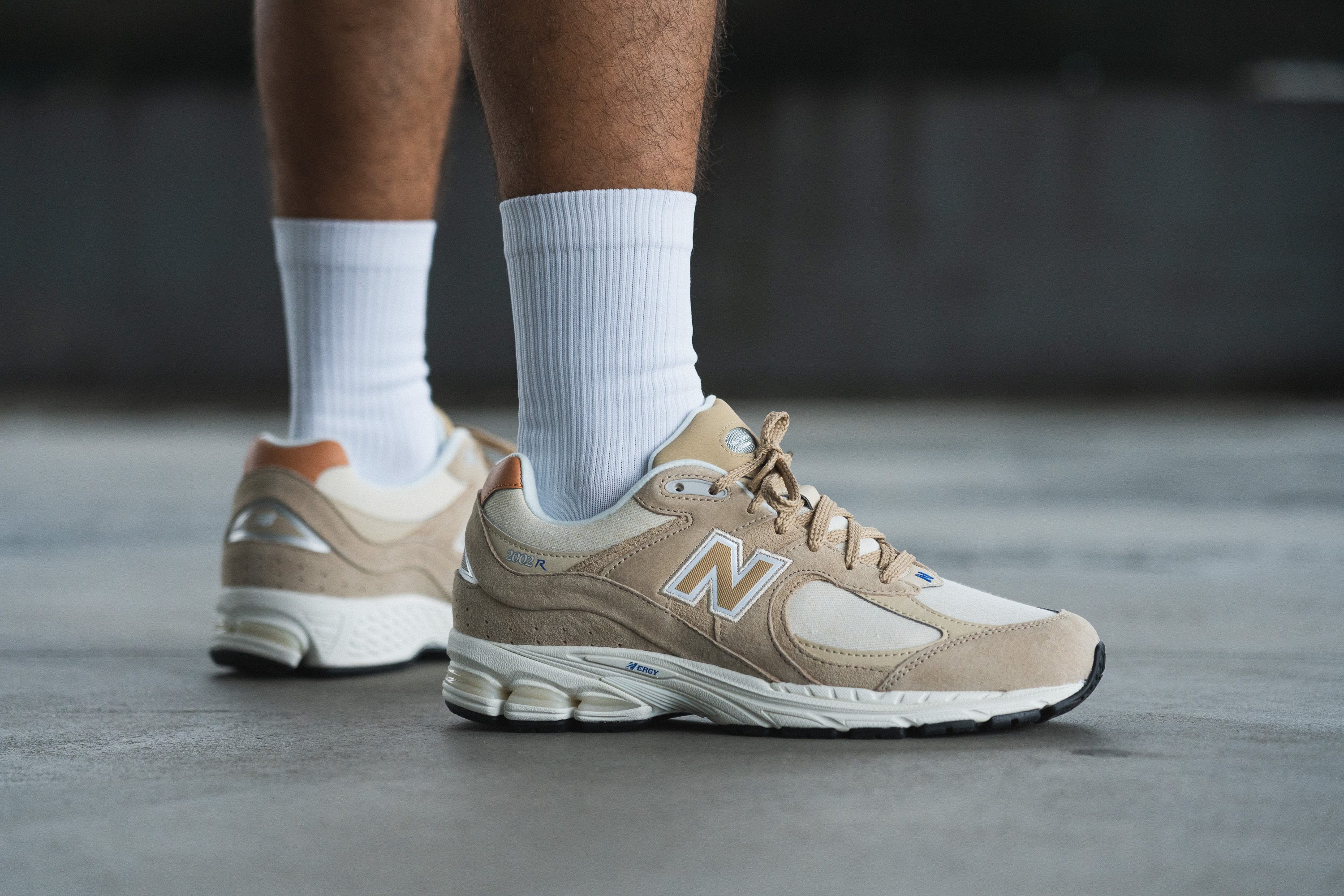
Who should NOT buy
This is a pretty solid shoe (literally!). Some people prefer stable and firm midsoles, but there are others that just love it when they feel they're walking on clouds. If you're looking for an extra plush pair to walk around town that doesn't forget about being supportive, we recommend the New Balance 9060. It also comes in a lot of colorways!
If you are on a budget and you need an affordable pair that accommodates wide feet, don't worry, you don't need to forget about your beloved New Balance! In our opinion, the New Balance 574 might be exactly what you're looking for.
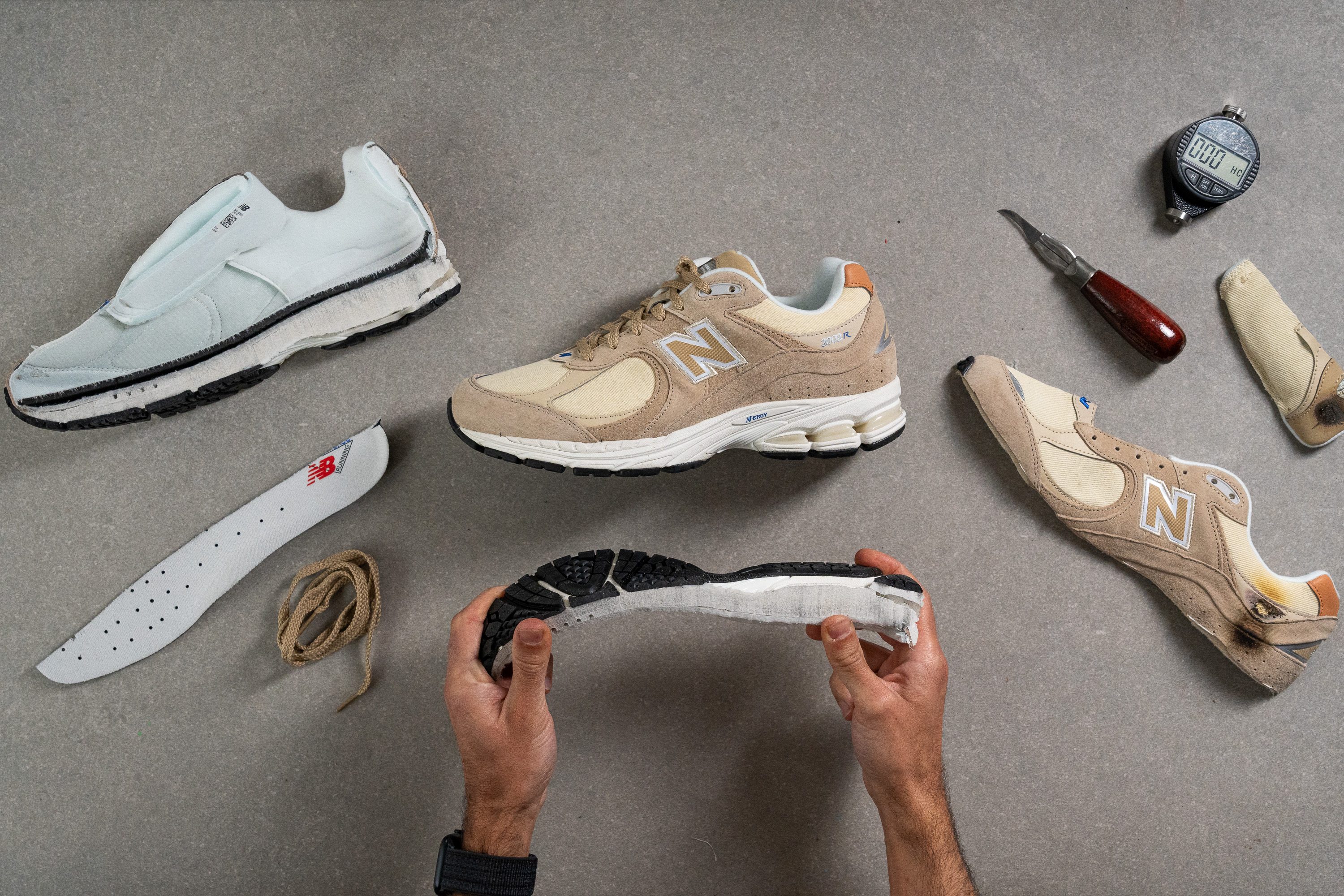
Breathability
Disclaimer: Please, note that we are testing the canvas version of the shoe.
It doesn't matter if you're a sneakerhead, if you love lifestyle shoes, or if your last New Balance is too worn out and you need something to meet your friends in the weekends. Even though we all (and every single RunRepeat member included, clearly) would love to wear our favourite pair all year long... it's important to keep in mind that some shoes are suitable for winter, and others are better for the summer.
To find this out, we perform our breathability test. Basically, what we do is pump the shoe full of smoke and see how much of it each pair lets out. Following the results, we can tell you if you should wear it in the summer, or if it should stay in your wardrobe until Mariah Carey starts singing.
Alright, 2002R, it's your turn. Much like Hogwarts' houses... where do you belong?
Uh-oh, winter house it is!
If we look at the video, we can barely see the smoke coming through this NB's tongue. That's why it earned a sad 2/5 score.
On the right, we have the PUMA RS-X, which scored a 4/5 on this same test. Assuming the role of the Sorting Hat, we all agree the PUMA shoe would go to the summer house, but the NB one has to stay in the winter one.
Similarly to performing Lumos in the Harry Potter universe, we got our bright light and put the shoe in front of it to see if it had any ventilation holes. Don't let the lighter part fool you, that's not the light coming through! It's just the colorway we picked. This model has no gaps to let the air come in and out.
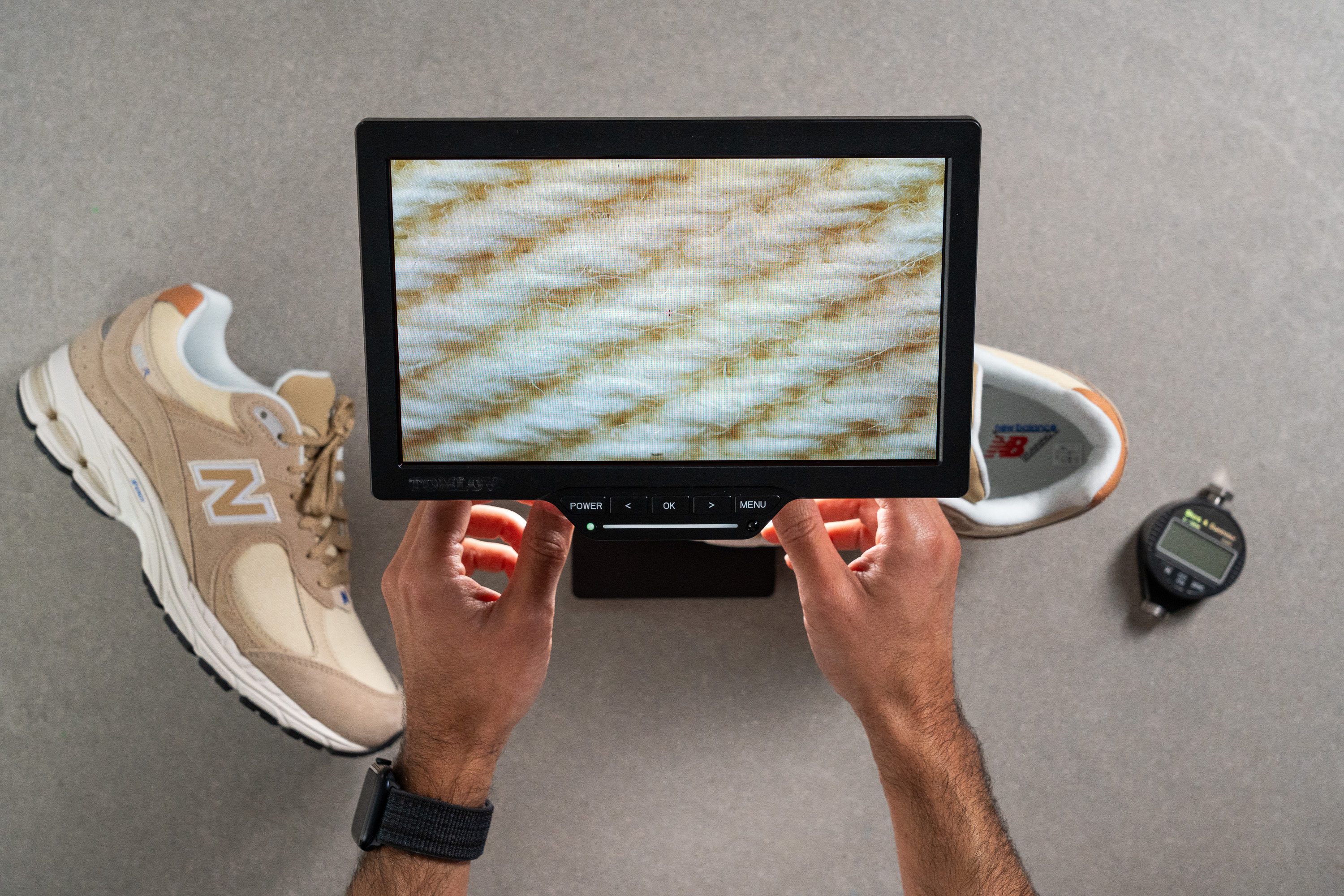
Our microscope didn't even hesitate. The material is tightly woven!
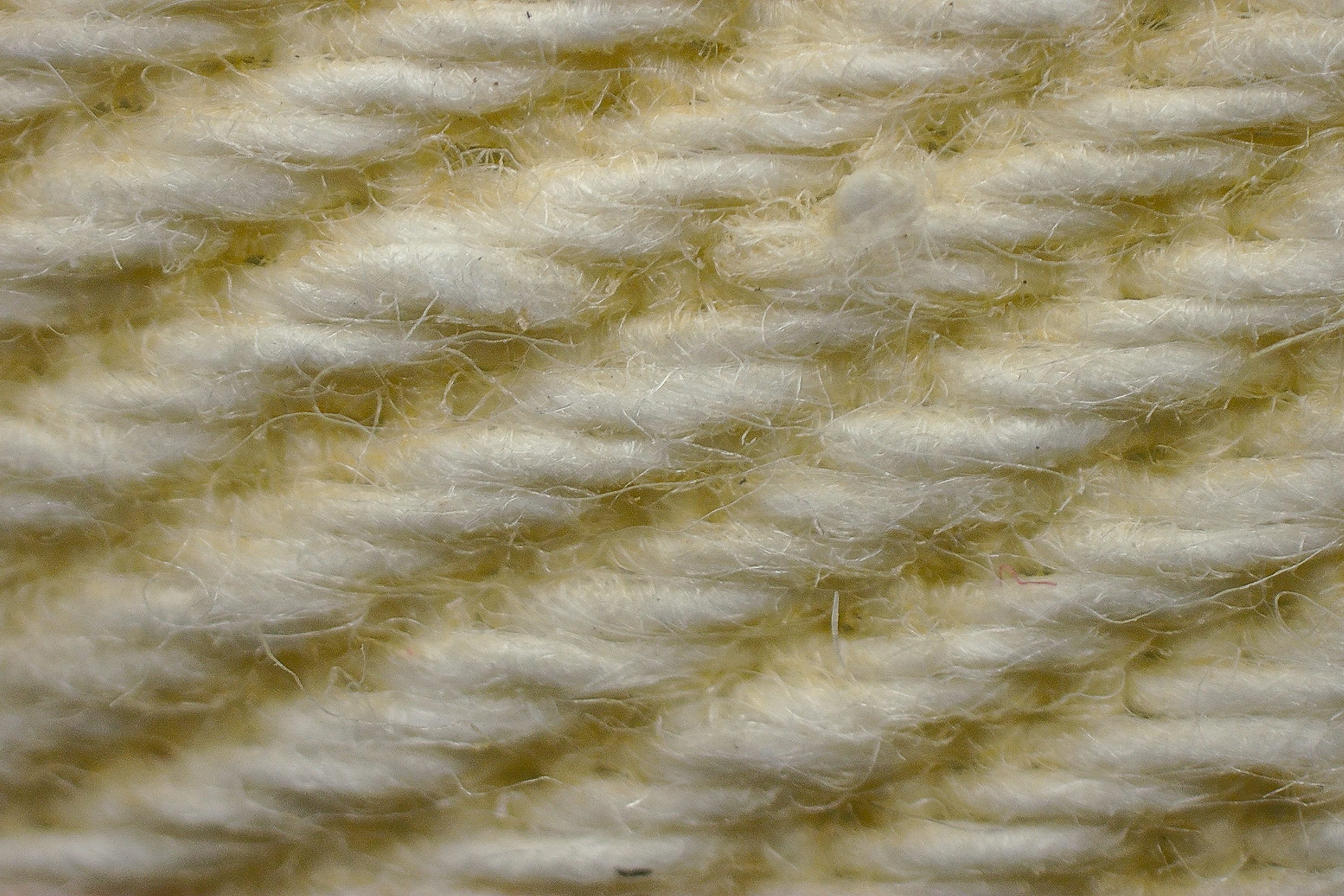
We can see it more clearly in this close-up. There's nothing here telling us that this shoe will let your feet breathe. But the tongue did save it from a 1/5 in our breathability test, though!
| 2002R | 2 |
| Average | 3.1 |
Durability
Leather/Suede quality
To check if the materials of the upper are genuine or not, we light things up... Incendio!
But instead of a wand, we get our blowtorch and let the shoe do the rest.
We found out the suede part is authentic. As you can see, there's no actual flame there, unlike in the leather part. Even if you can only see it for a bit, we've got no doubts: the pigskin is not real, it's synthetic/fake.
This doesn't mean the shoe has any less quality, though. It's just a small part, and the rest is authentic, so we didn't actually mind.
| 2002R | Real suede |
Toebox durability
When a shoe is not breathable, it usually means it's gonna be durable!
This NB's upper is made using mesh and suede, adding some extra leather parts. This mix is usually bad news for our Dremel, as it means the shoe is going to put up a fight. Is it going to leave with a scar, just like it happened to Harry Potter? Or is it going to get totally obliterated? Let's find out!
WOW! We were so impressed that we could give it no less than a 4/5 in our toebox durability test!
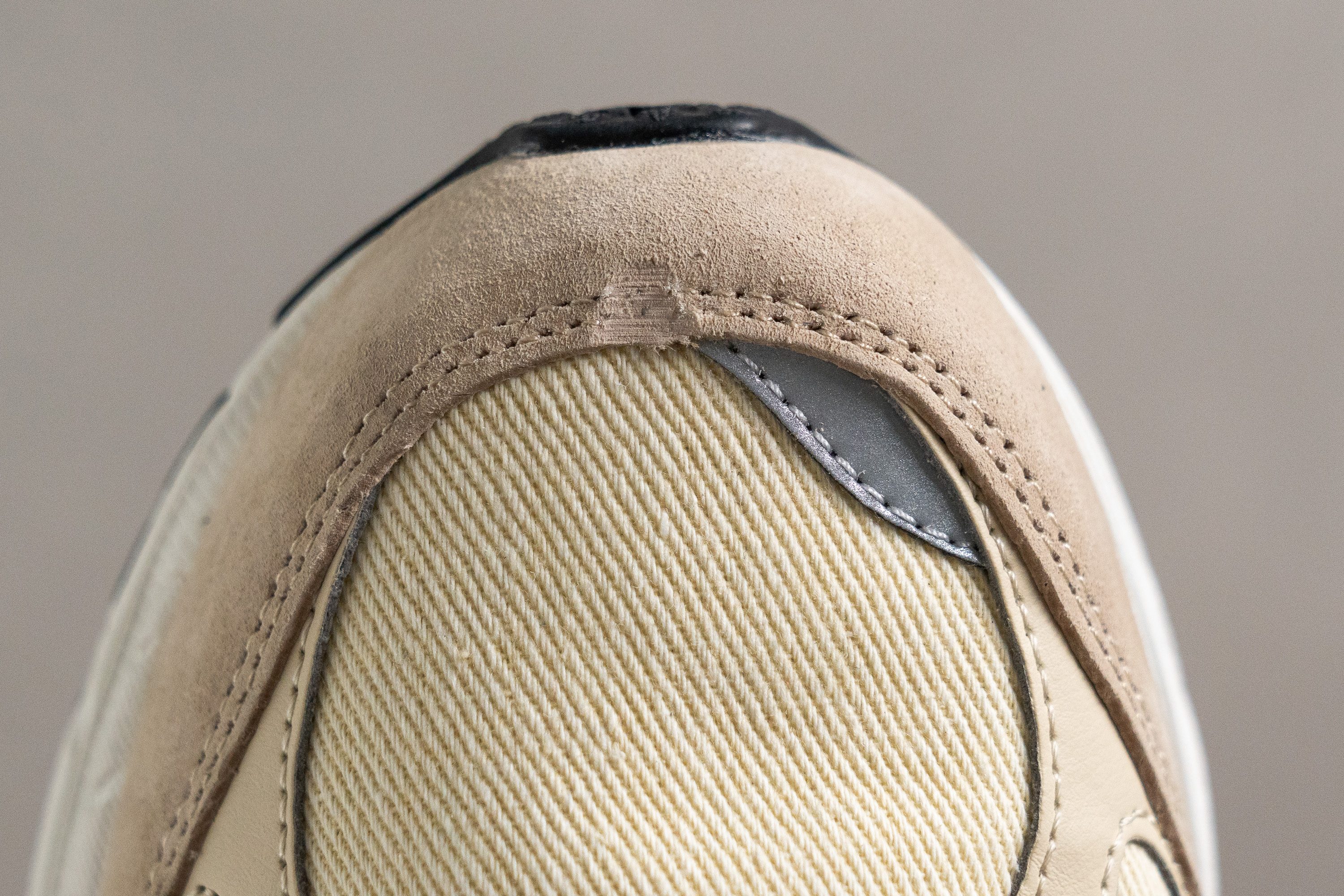
The suede protection didn't let the mesh get a single scratch! We are INCREDIBLY happy with this result. So, if you put durability way before breathability in your priorities list, then this is YOUR shoe!
If you want something more ventilated but you're team New Balance, we believe you should go for the New Balance 327.
| 2002R | 4 |
| Average | 3.9 |
Heel padding durability
Before you say anything about the results we got in this test, you need to know something. The heel padding is usually the weakest part of a shoe, so it's common for it to suffer when our Dremel comes in to fight.
What do you think? Not too good, but... not too bad either! We were actually pretty satisfied with this. Earning a 3/5 in our heel padding durability test, this shoe is just about average.
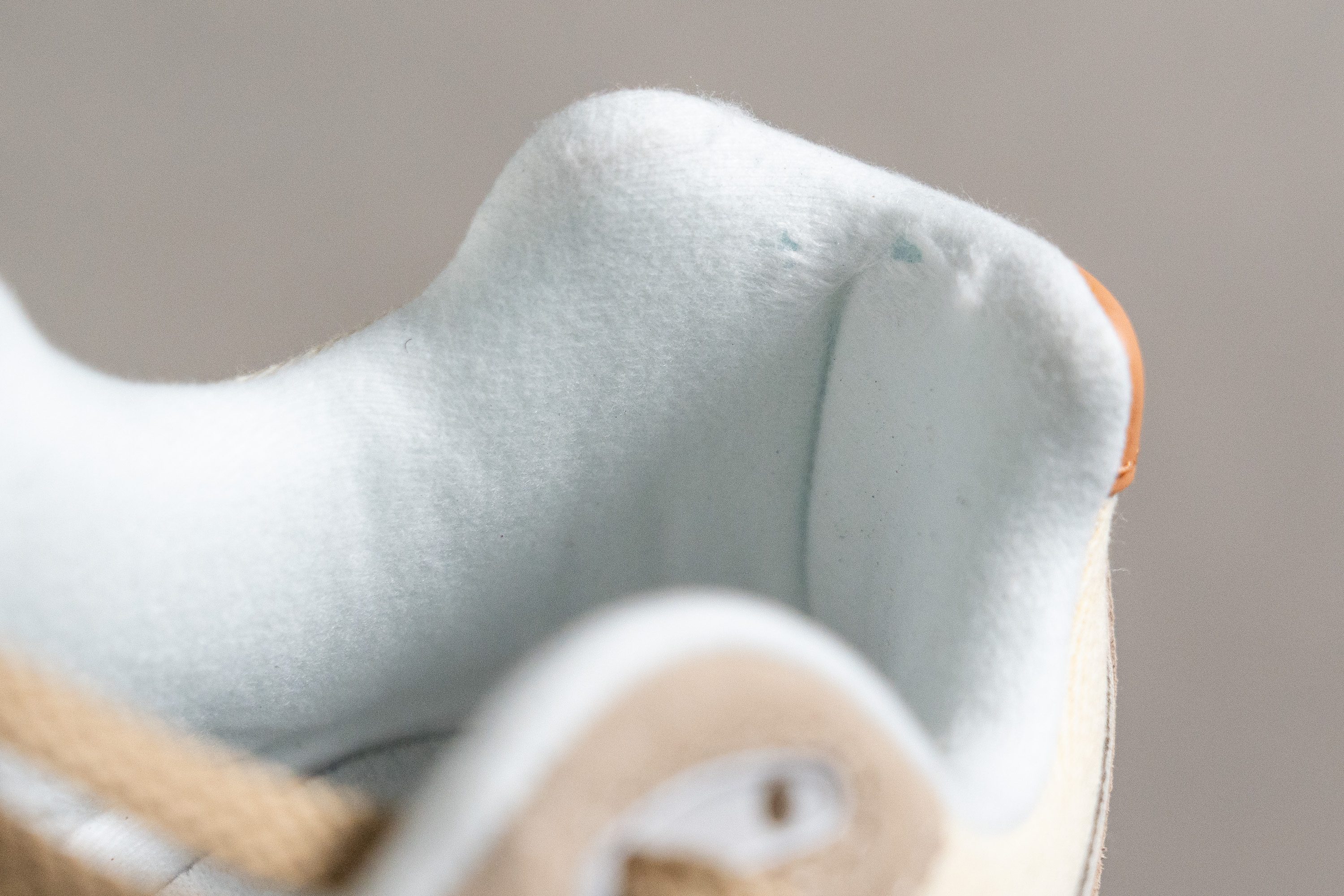
If you look closely, you can see the material got damaged and deteriorated, but not to the point where the integrity of the shoe was affected.
We can't complain, though!
| 2002R | 3 |
| Average | 3.5 |
Outsole hardness
We got our durometer and pressed it against this pair's outsole. At 85.9 HC, it's a pretty average score, honestly. But this is good news! Most times, this means the shoe offers a great mix of durability and grip.
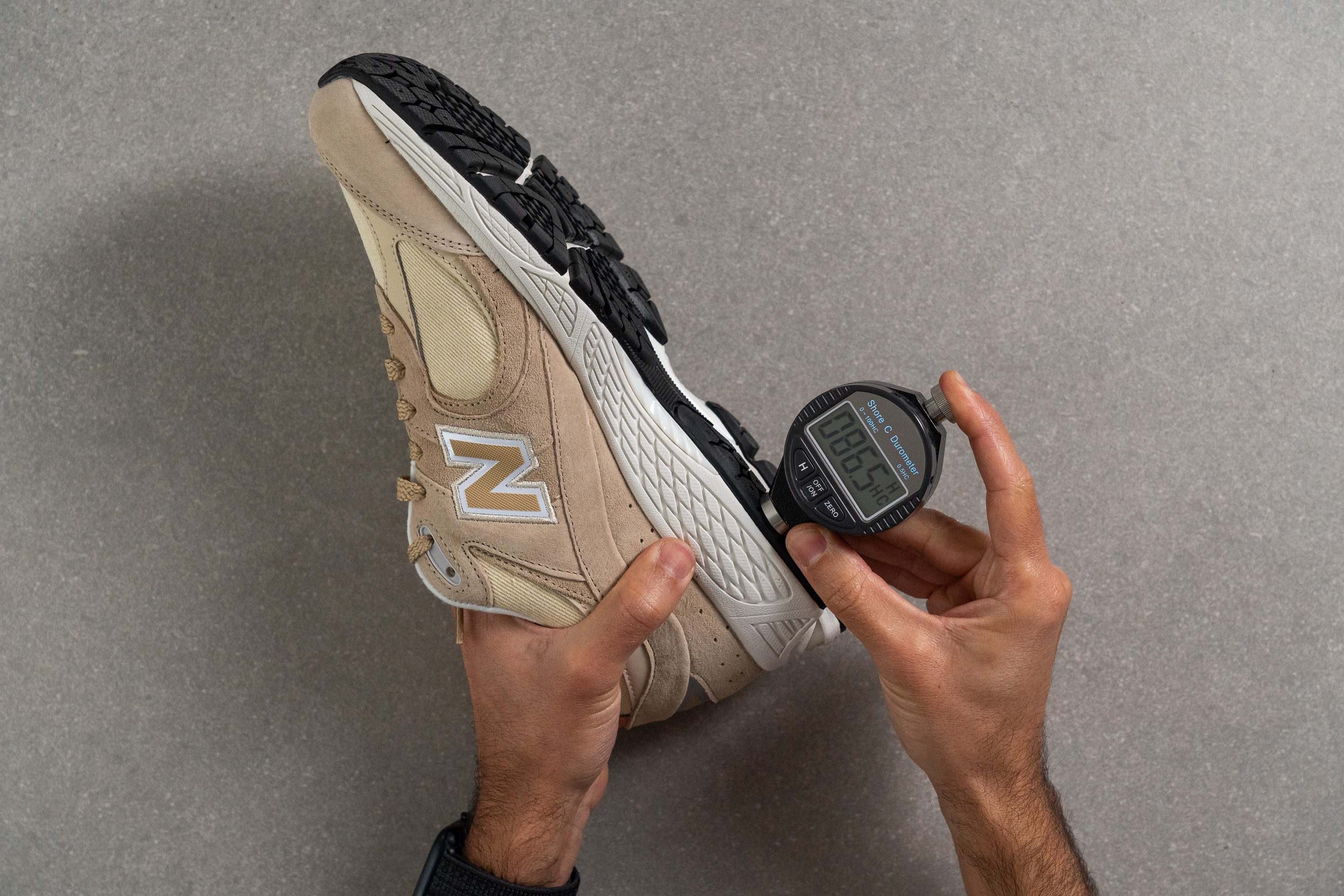
No blowing up and exploding potions. The brand chose the right formula here!
| 2002R | 85.9 HC |
| Average | 85.3 HC |
Outsole durability
Test time! Alright, 2002R, are you ready to fight? Because our Dremel for sure is!
After a 22-second battle, we lifted our tool to see if the outsole was actually as durable as it seemed to be or if it was just a transfiguration spell.
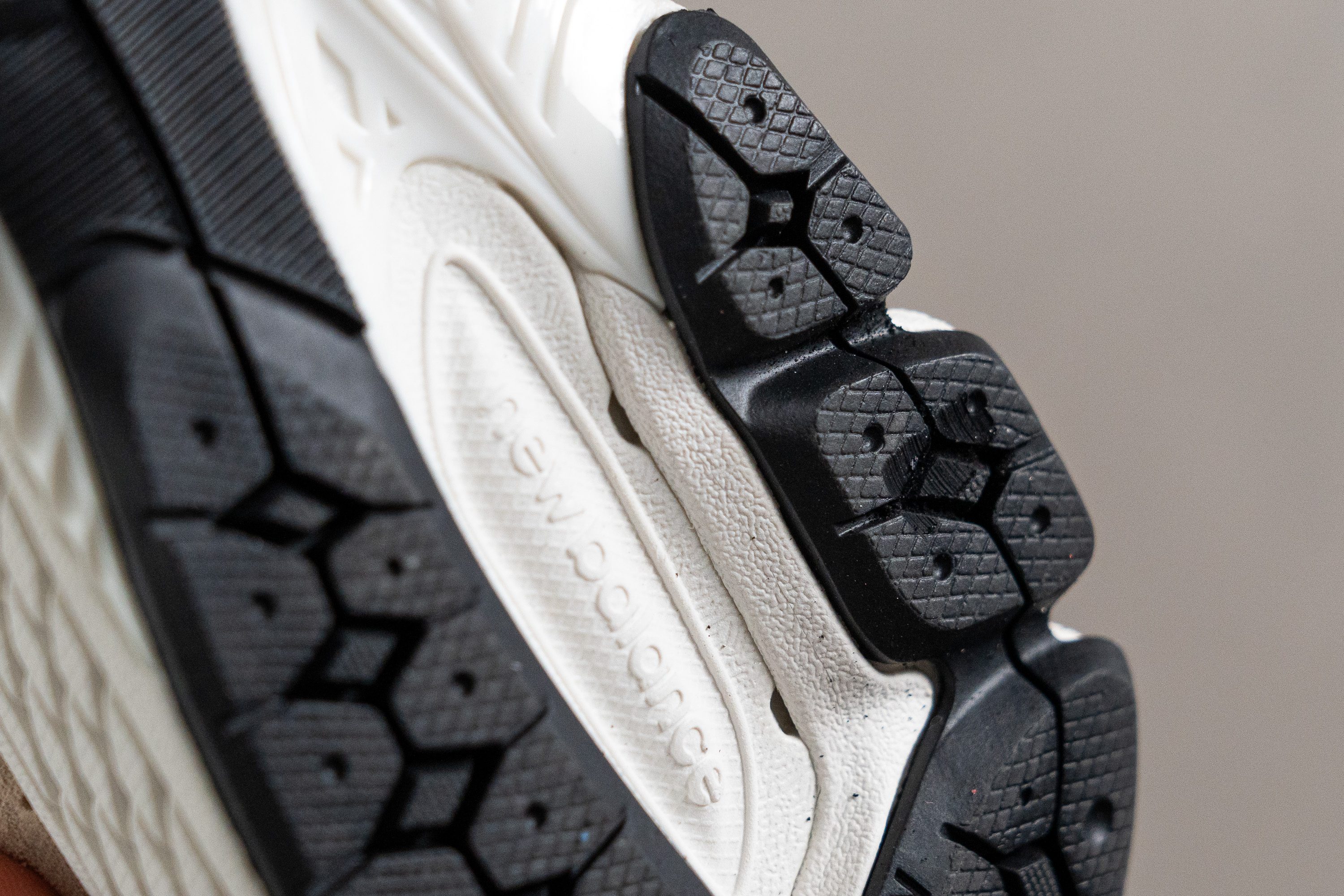
At 0.9 mm, our tread gauge confirmed this pair's outsole is as durable as the average of our lab-tested sneakers. Not bad at all!
It wasn't cheating, then. And if we add this test's result to our experience walking around town with it, we can guarantee this NB is the Fred to your George Weasley! It will be your inseparable pal for a long, long time.
| 2002R | 0.9 mm |
| Average | 1.0 mm |
Outsole thickness
Talking about Weasleys... the more, the merrier, right?
The 2002R's outsole follows a similar idea, as it's thicker than average with its 5.9 mm, according to our caliper.
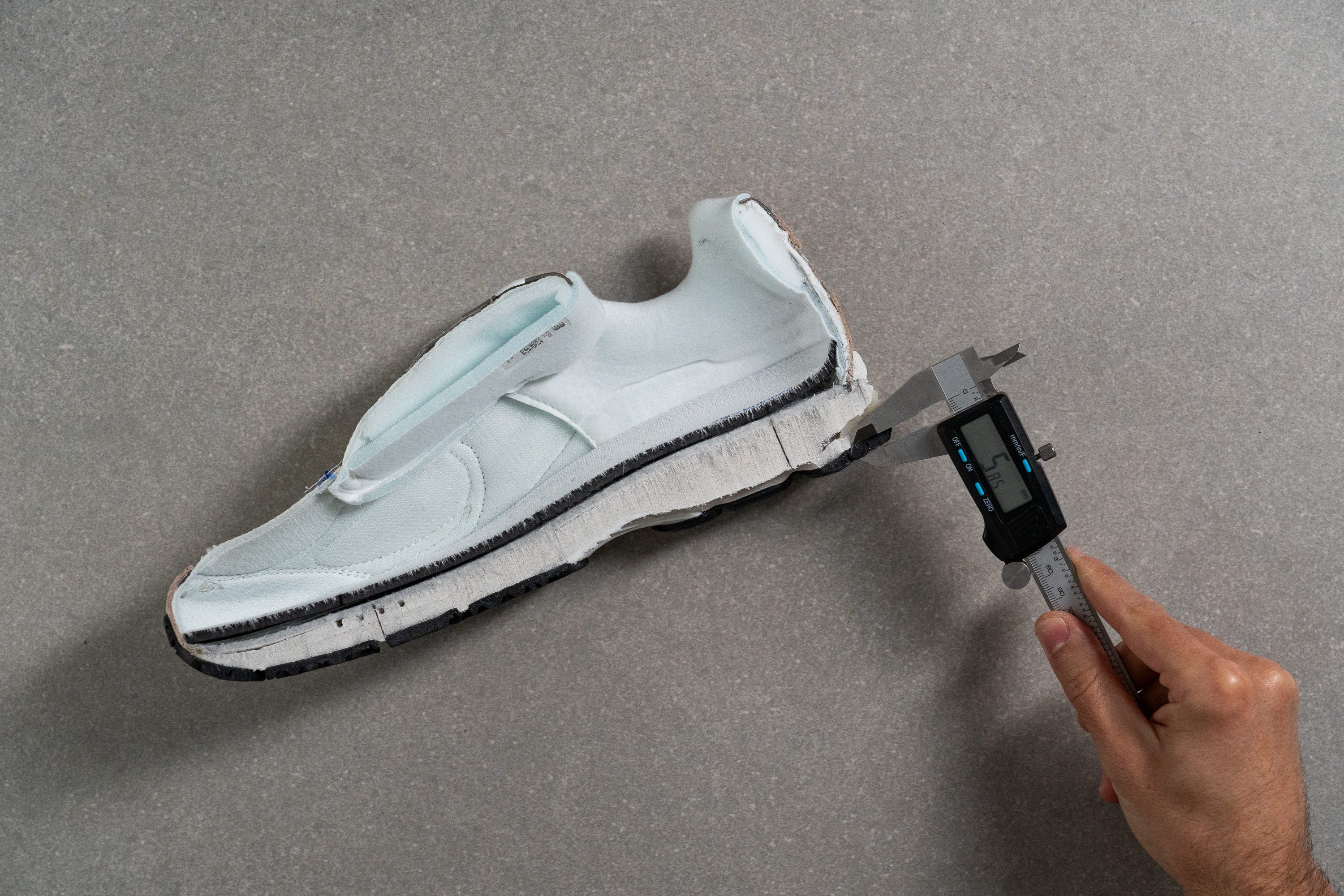
This only adds up to the general durability of this shoe, which is great news!
Way to go, NB!
| 2002R | 5.9 mm |
| Average | 5.5 mm |
Weight
A thick outsole, a resistant upper, and the typical dad shoes style of this brand. If we mix all this, doesn't it sound like Hagrid would say: "Yer a chunky and heavy pair, 2002R"?
Well... maybe it does, but our scale would disagree!
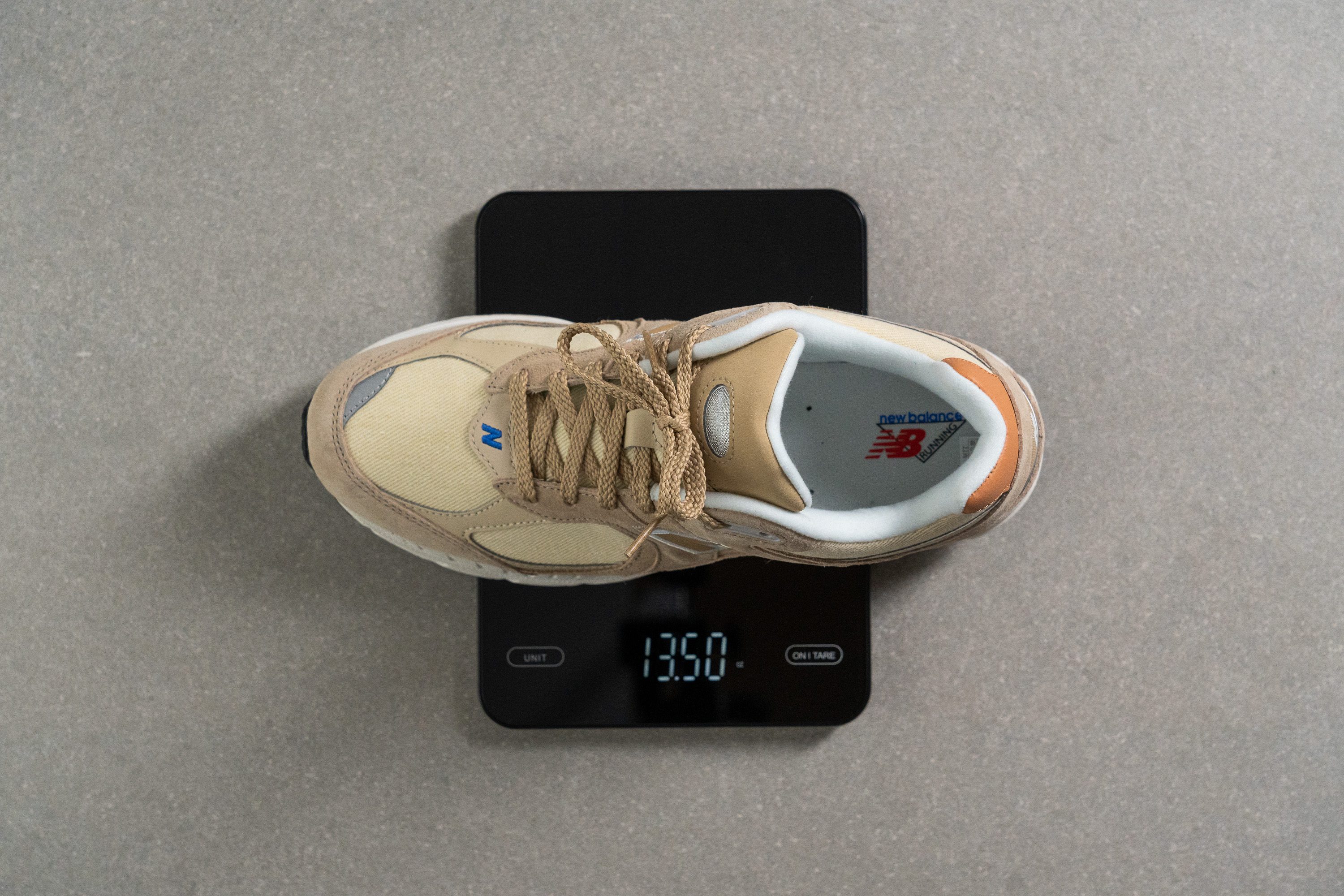
With 13.5 oz (383.0g), we can't say this NB is actually light. But it's not heavy, either! It's actually 4% lighter than our lab-tested sneakers. That doesn't sound like much to you? Well, a win is a win! Don't forget what we said at the beginning of this section, we're talking about a pair of sturdy pals!
| 2002R | 13.51 oz (383g) |
| Average | 13.86 oz (393g) |
Cushioning
Heel stack
We were even more impressed about the weight of this shoe when we measured its heel stack.
Yet... we've got bad news. During our wear tests around town, we didn't really feel the familiar and absolutely wonderful comfort that New Balance proudly offers in many of its shoes.
With its ABZORB midsole, the 2002R absorbs impact through a combination of cushioning and compression resistance. But, somehow, this model felt quite stiff.
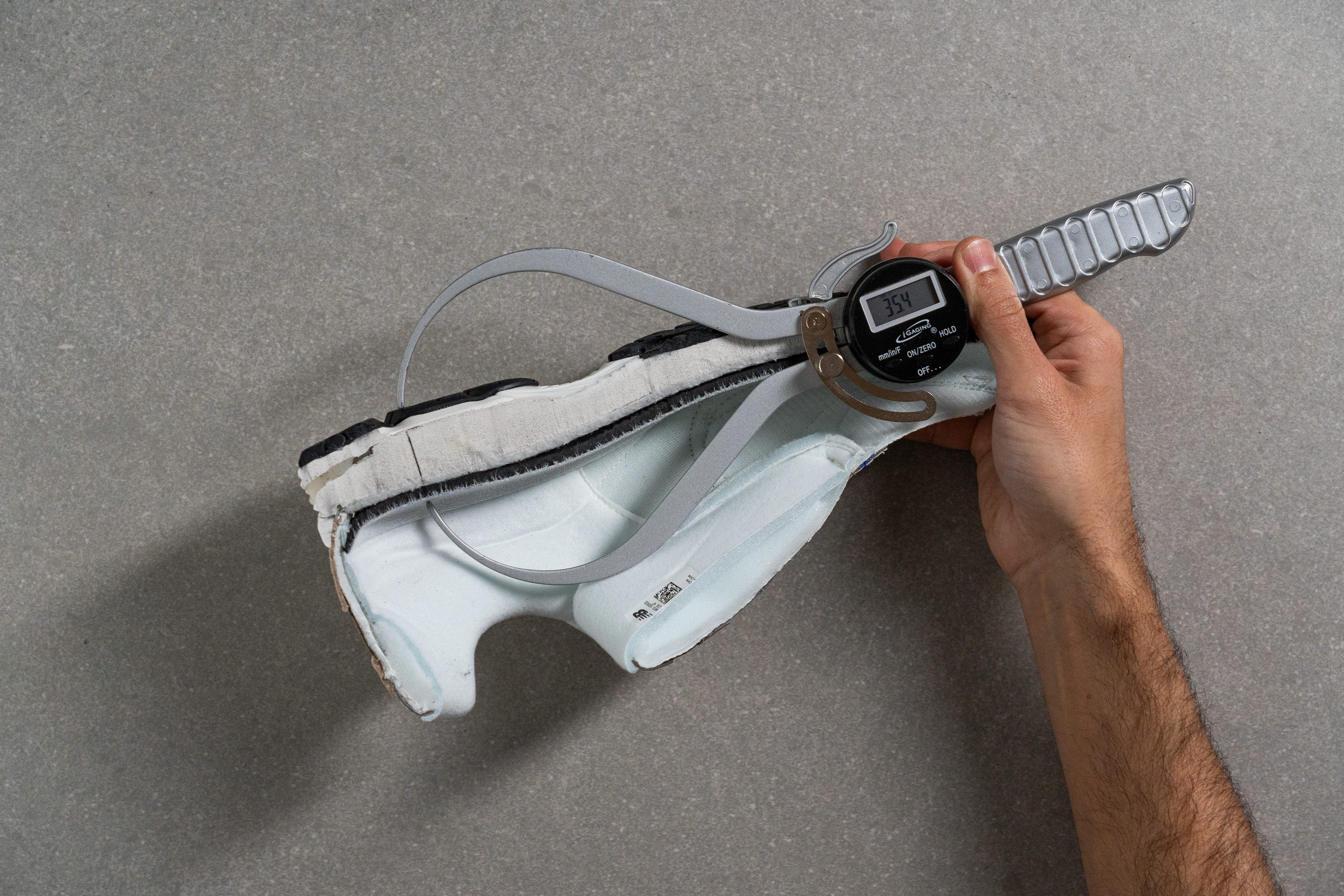
At 35.4 mm, our caliper told us that a higher-than-average stack does not equal an extra plush ride!
Nevertheless, it's not like this will question its all-day wear capabilities. The underfoot support we felt was fantastic, and we could use this pair for hours. Also, as it's more on the lightweight side, it didn't make us drag our feet!
Last but not least, this height added to the firm midsole and to the thicker-than-average outsole just equals an extremely protected ride. Forget about pebbles, sticks, or uncomfortable curbs. The 2002R is here to give you a hand, but a hand with an armour!
Here in RunRepeat, some of us love kicks that make us feel "LeBron James tall"; and some others just adore the "the ground is me I am the ground" pairs, which let you feel every single thing under your feet.
If you belong to the first group, we recommend the New Balance 530 (heel stack: 37.3 mm). If you are more down to Earth (yeah, sorry about the pun), we believe you should try the New Balance 480 (heel stack: 26.7 mm).
| 2002R | 35.4 mm |
| Average | 29.7 mm |
Forefoot stack
Its heel cushioning features the ABZORB SBS technology, which delivers additional stability and comfort.
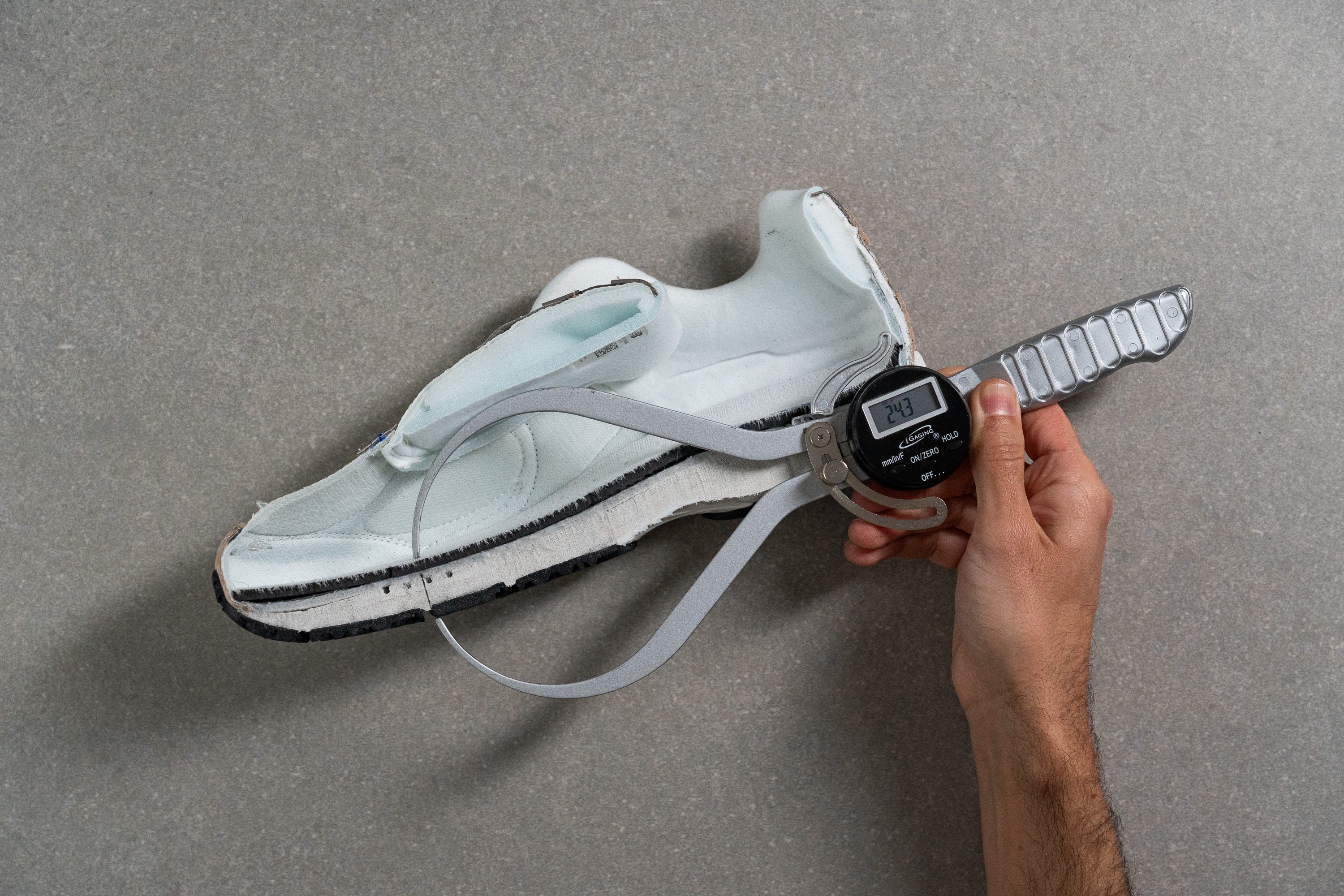
Our caliper made it clear. At 24.3 mm, your feet have nothing to fear! Even though there's a 10 mm difference between the forefoot and the heel, don't worry, this is completely normal!
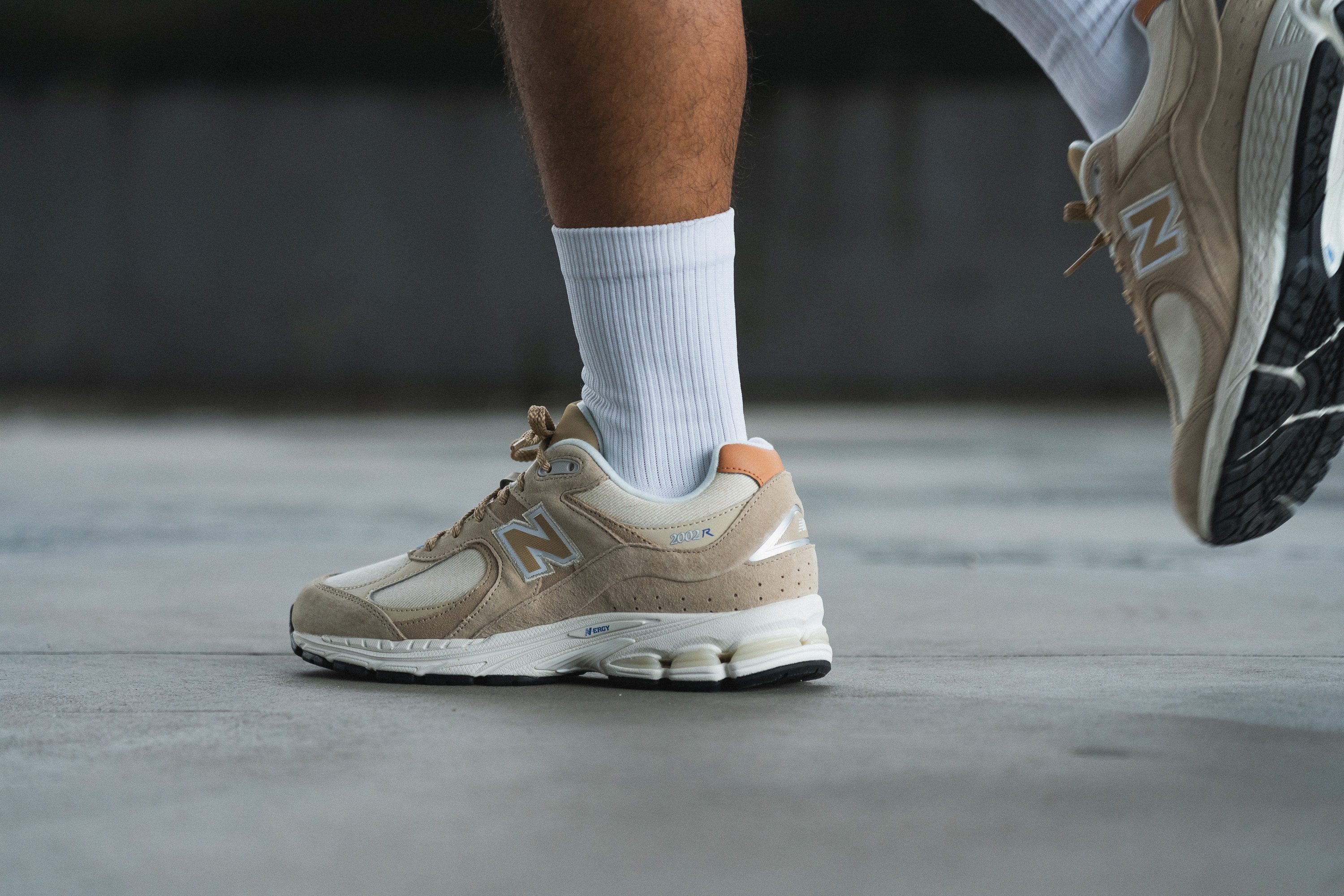
Still, we can't say this shoe's design focuses on being comfortable. After our tests and analyses, we can say that it puts stability first.
But please, don't get us wrong. It IS a comfortable shoe, but comfort is just not its very first priority! It's worth mentioning that commuting, going for a walk, trying to catch a bus, or just joining our friends in the bar all felt like a breeze. Forget about Wingardium Leviosa, this pair is all you need to be light on your feet!
| 2002R | 24.3 mm |
| Average | 18.7 mm |
Drop
Alright, let's go straight to business. This shoe's drop is 11.1 mm, following our previous measurements.
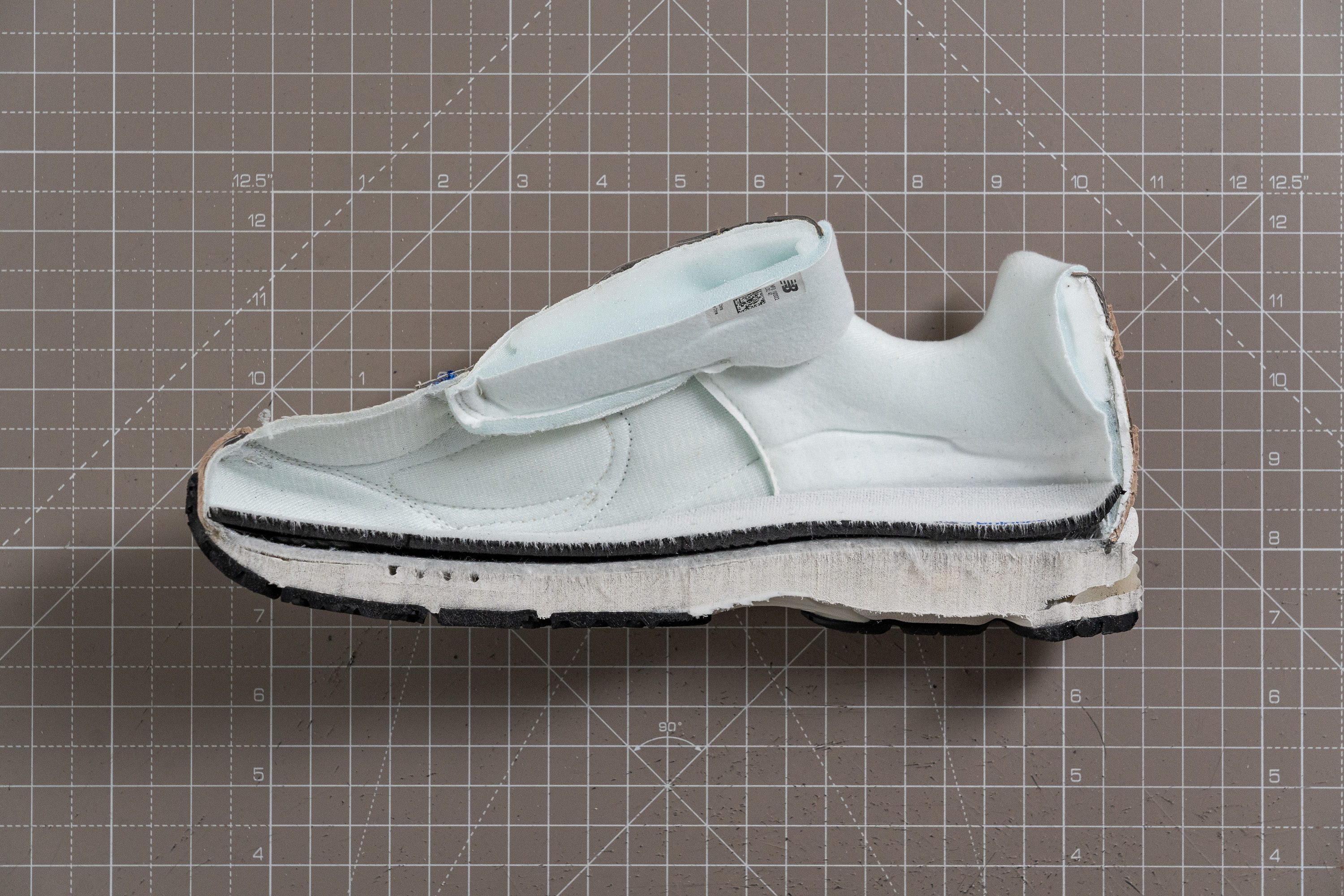
When we talk about drops, it might sound confusing, and you might be wondering what's better, a low or a high drop? Well, let us tell you something that will definitely help with this: there's nothing such a "better" or "worse" drop!
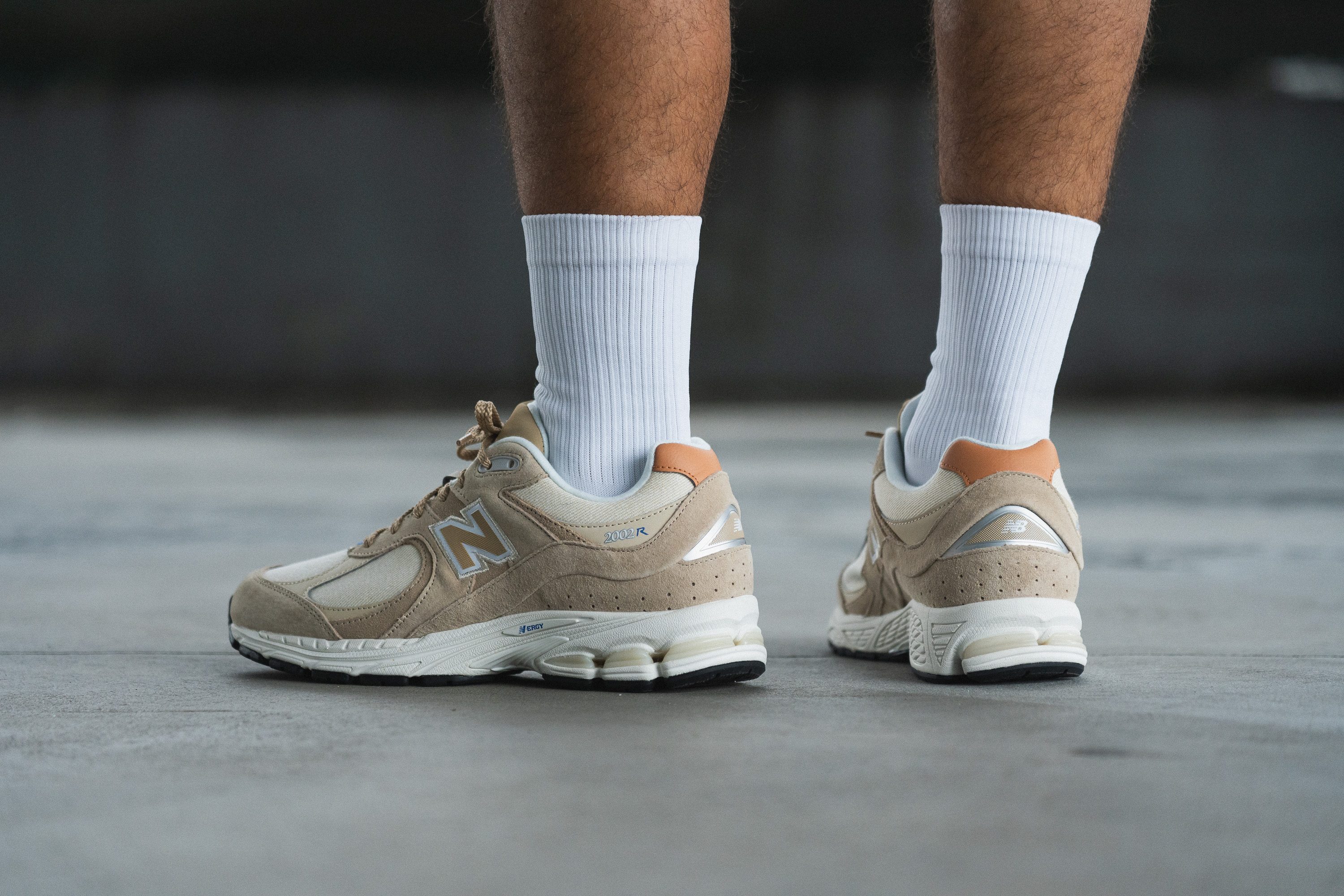
It depends entirely on you and your personal preferences. In this case, the 2002R has a taller heel, which makes walking around more comfortable, as that's the part of our feet that usually lands on the floor first. Also, as it's drop is standard, your feet won't need to get used to anything. Rest assured!
| 2002R | 11.1 mm |
| Average | 11.0 mm |
Midsole softness
Despite its higher-than-average stack height, this shoe's midsole is not as soft as the average.
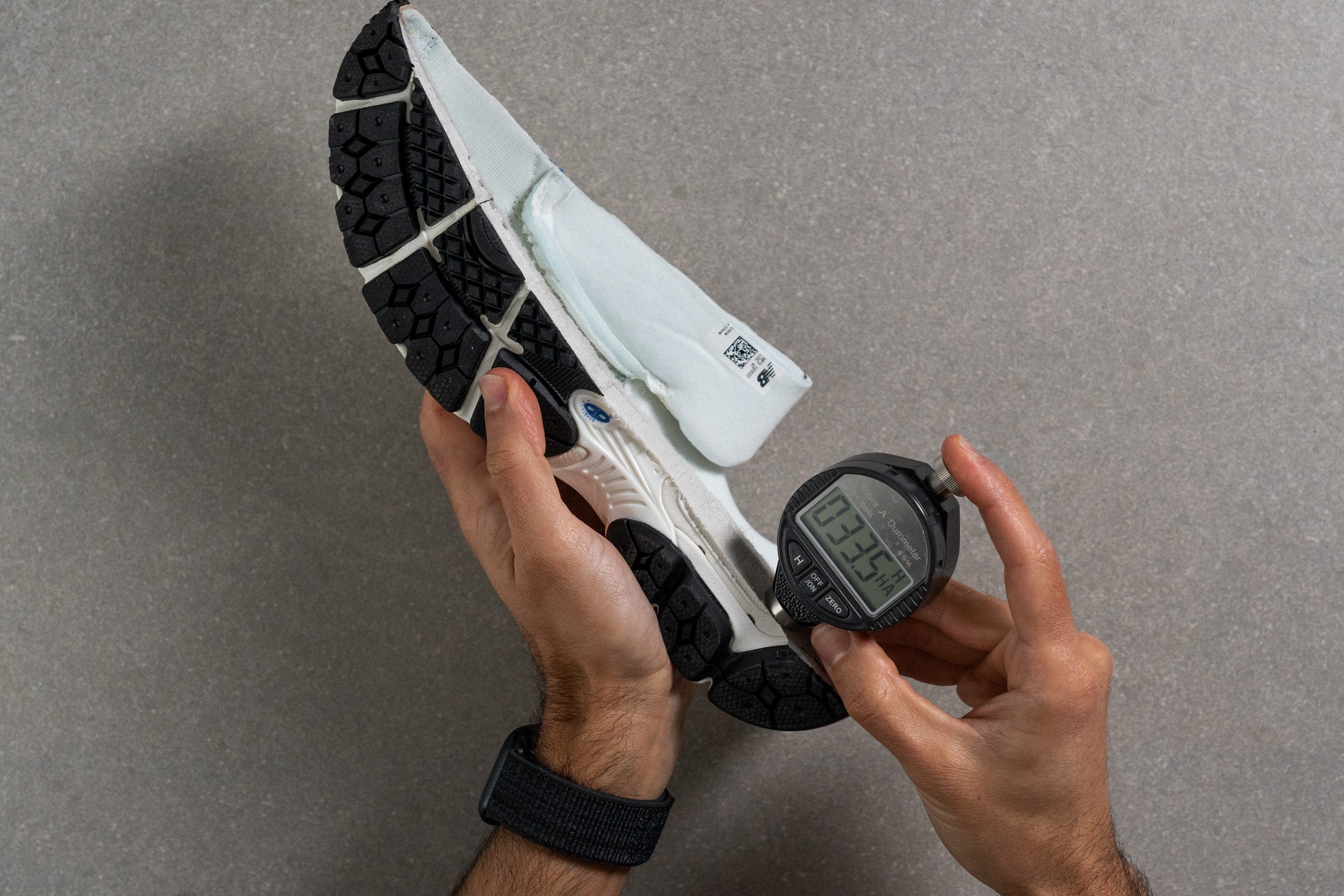
At 32.6 HA, we can say it's a brick, but you won't feel like you're walking with clouds of your feet either. If you're a fan of firmer kicks, have a look at the New Balance 574 and thank us later! If you claim "plush is love, plush is life", go for the New Balance 9060.
Still, let us make it clear once again, as it's a common misconception: A midsole on the firmer side does NOT mean the shoe will be uncomfortable. It not being extremely plush just adds up to the overall support this brand is so well-known for, so don't worry, you'll love walking around with it just as much as we did!
After all, as Hermione would say: "It's New Balance, not New UNBalance".
| 2002R | 32.6 HA |
| Average | 29.1 HA |
Insole thickness
At 4.4 mm, these kicks' insole is not as thick as average. Actually, it's a whole 25% thinner.
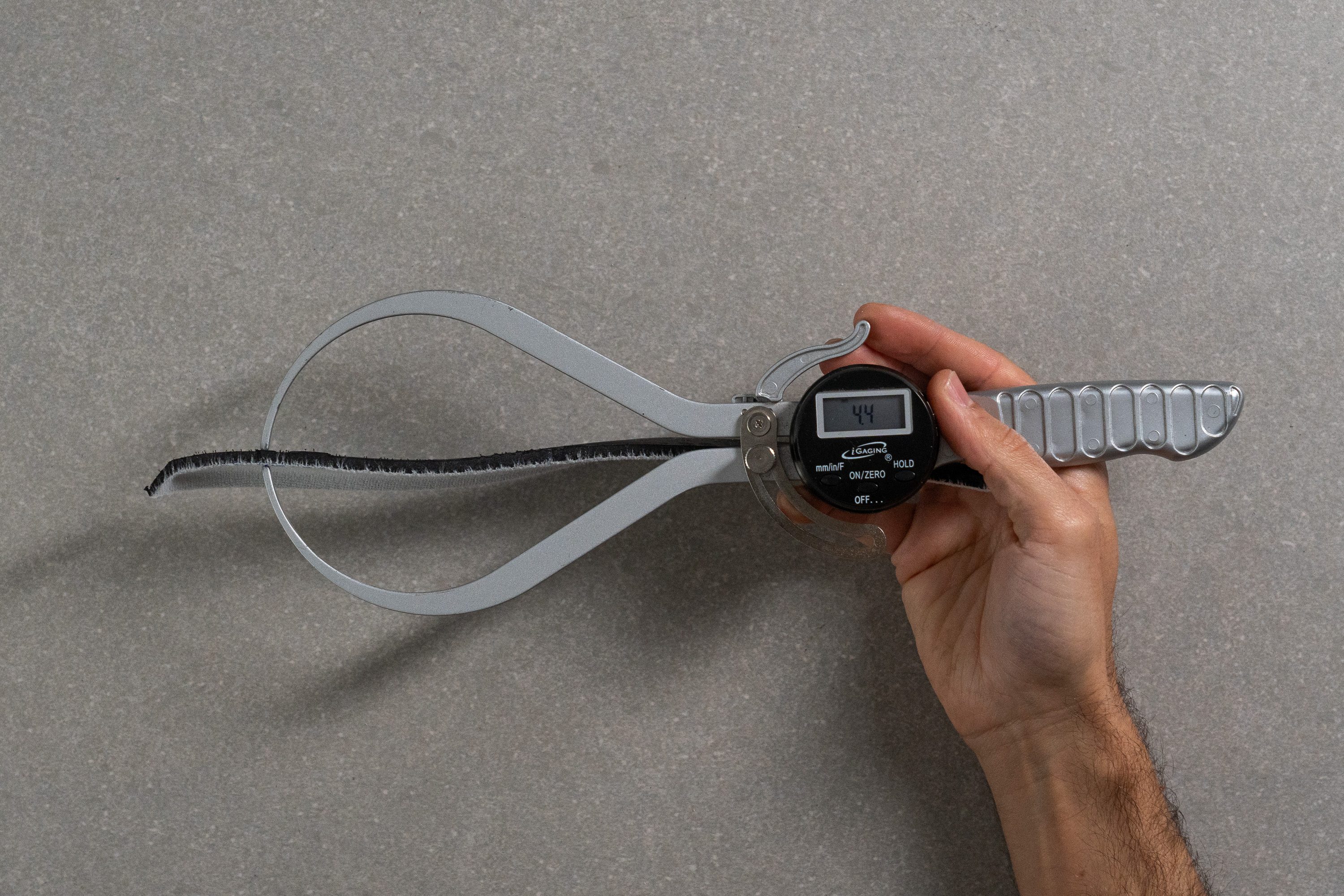
Honestly, if we had to say if this shoe's insole was thinner or thicker than average basing our answer exclusively on our wear tests... we would have guessed it right. This pair is not soft, so we did think its insole would be more on the thinner side!
But hey, don't worry: it's removable!
| 2002R | 4.4 mm |
| Average | 5.2 mm |
Stability
Lateral stability test
This is why we love New Balance. This brand's shoes are not only supportive underfoot, they are also stable at the top!
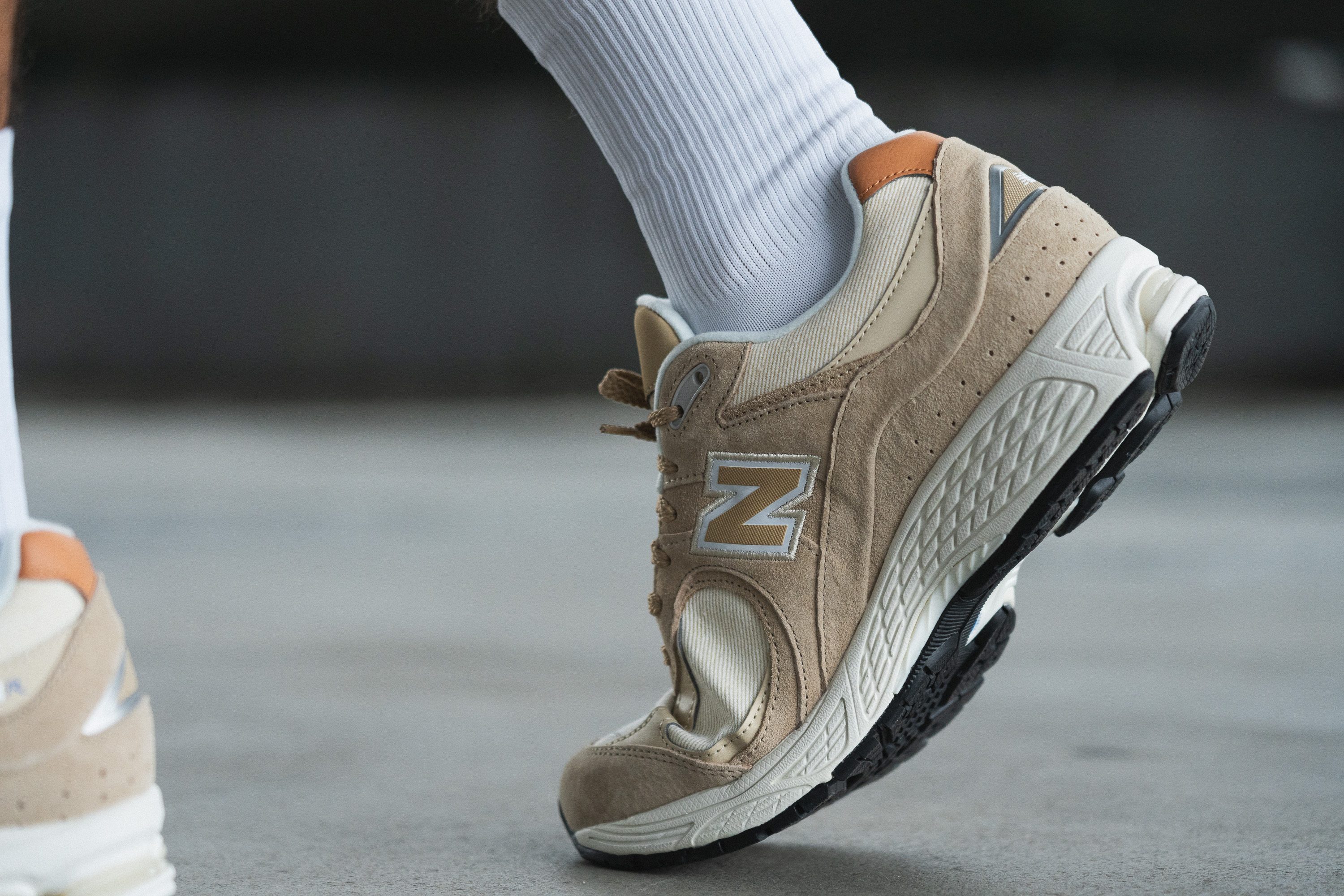
We felt safe and happy wearing this pair. As you can see in the video below, there are no wobbly ankles, so we didn't have to worry about feeling unsteady. Also, as we have already said multiple times, it's New Balance we are talking about. Foot support is what it does best!
Additionally, regarding the 2002R specifically, its traditional lacing system and resistant upper design and materials contribute to the overall stability and surefootness. As we'll see later on, its tongue is the last Horcrux regarding this feature. But no spoilers!
Torsional rigidity
This shoe focuses on stability, and it's ready to prove it!
We decided to grab it with both hands and twist it, bend it, squeeze it... well, pretty much try to pack it up as if we were trying to make it fit into our suitcase for the train to Hogwarts. But nope. Yeah, nope. Just like the Snitch, this kick decided it didn't want to be tamed!
Scoring a 4 out of 5 in our torsional rigidity test, where 5 is the most rigid, these baddies make sure your feet stay where they should. With its stable upper, once you lace this shoe up you'll feel confident in your every step.
You can see in the video how rigid the 2002R is when it falls. Even though this gives you some extra support, you might not like it if you're a fan of accommodating and forgiving pairs.
So, if this is not your thing and you want something more flexible, your feet will love the New Balance 480, as it's incredibly pliable (and also way cheaper!).
| 2002R | 4 |
| Average | 3.4 |
Heel counter stiffness
If a shoe focuses on keeping your feet in the right place, it can't go for a very flexible heel counter.
Why? Because the rearfoot can't be dancing around! We want it to stay in place but, at the same time, we don't want something so harsh on our feet that we end up with painful rubs or even blisters. Heck, no!
That's why a 3/5 in our heel counter stiffness test felt just right.
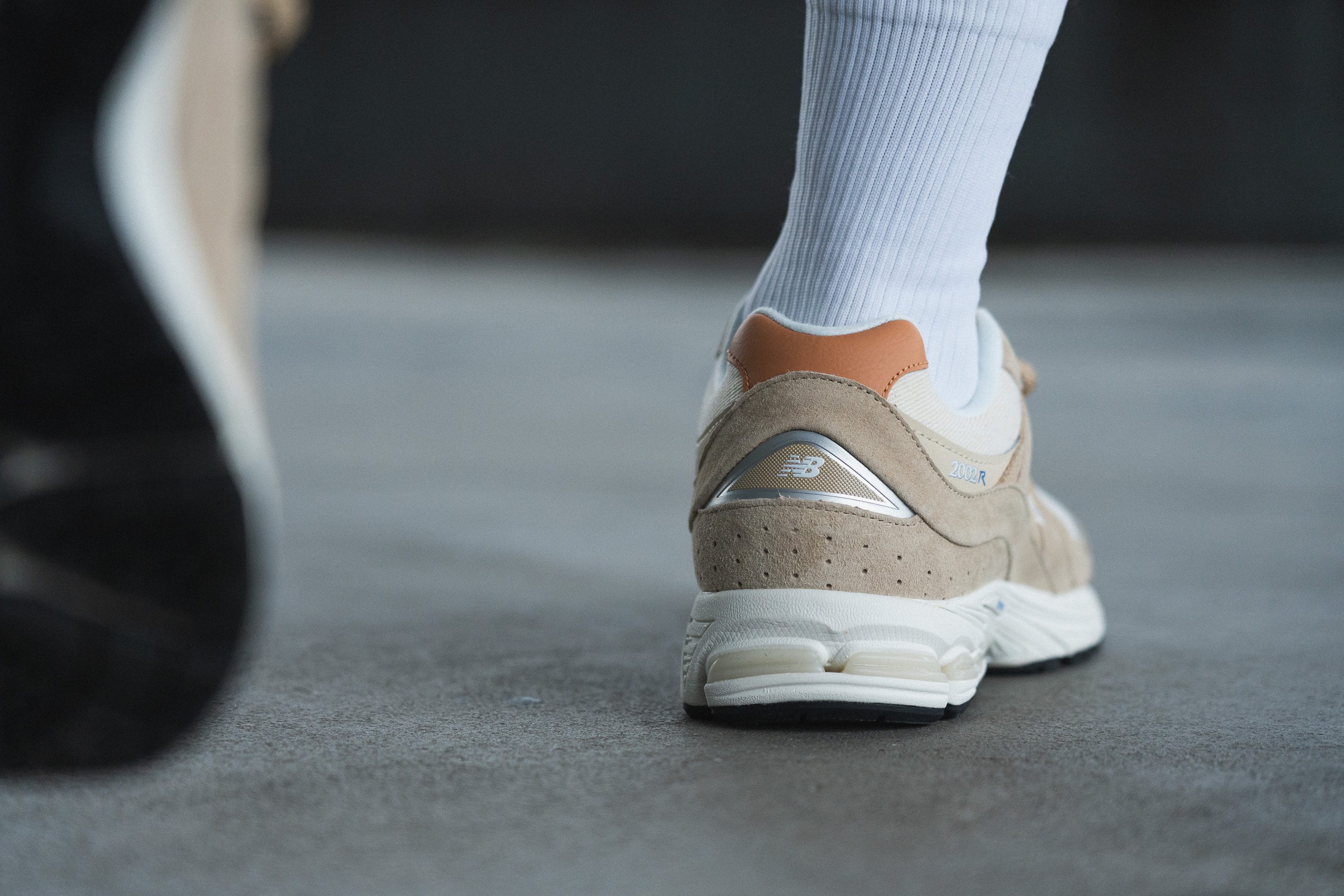
It's not too restrictive, but it's snug enough to make you forget about any potential heel slippage.
Great job, New Balance!
| 2002R | 3 |
| Average | 3.2 |
Midsole width in the forefoot
A wide midsole usually translates into a higher level of stability. Nevertheless, the 2002R had it clear... it doesn't need it!
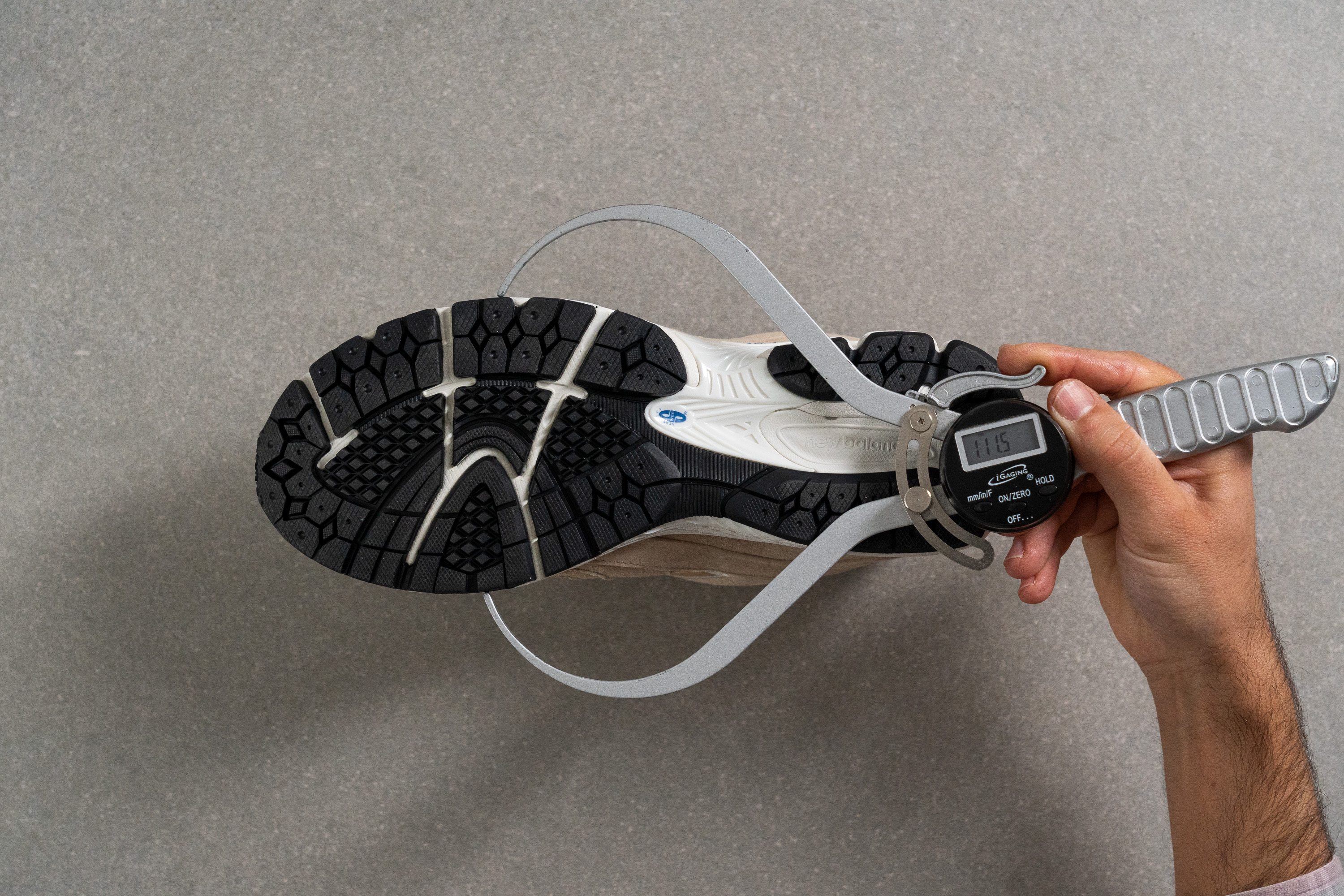
At 111.5 mm, it's just slightly wider than average. The brand focused on making this shoe supportive, but not suitable for wide feet! The fit was just right for our standard-sized feet, and they didn't feel constricted inside. Still, we would NOT recommend it for wide-feet sneakerheads.
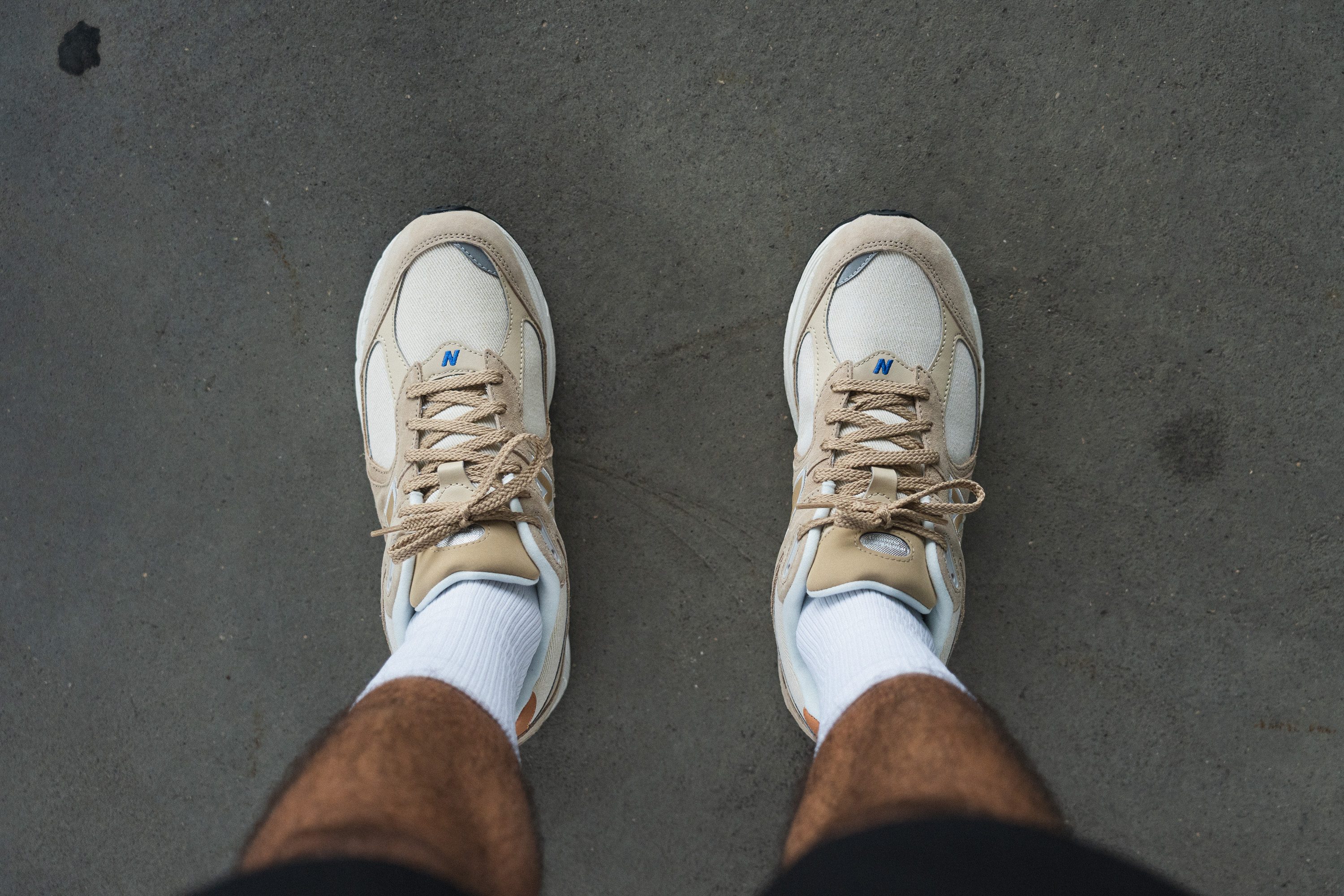
| 2002R | 111.5 mm |
| Average | 108.4 mm |
Midsole width in the heel
And the same thing happens in the heel!
At 84.7 mm, our caliper screamed: "Do NOT wear this if you have wide feet!".
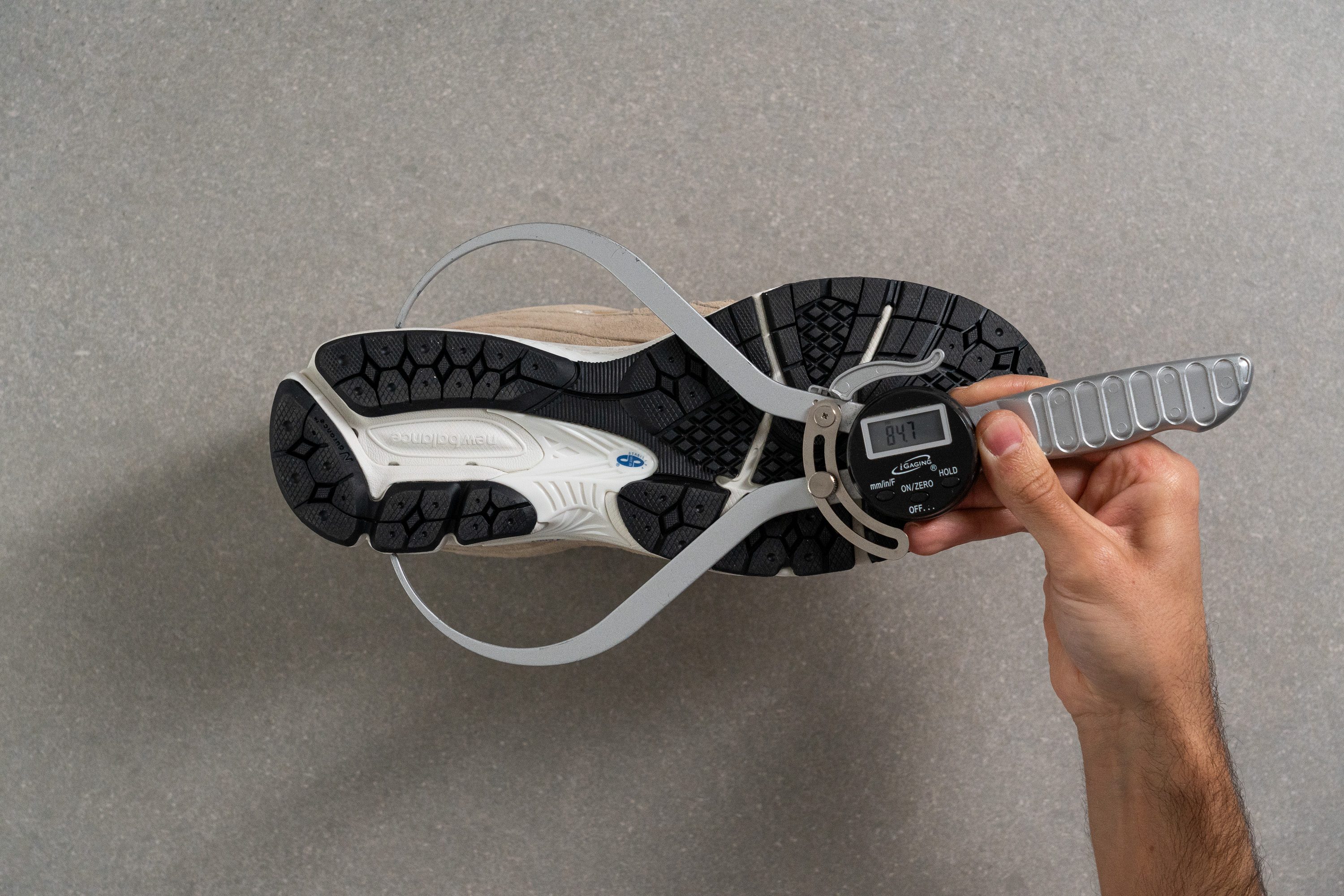
"But the shoe looks a bit chunky, though". Is that what you're thinking? Did we guess it right? If so, please keep in mind that appearances are deceptive.
Even though a shoe might look bulky, that does not mean it welcomes wide feet. To keep it simple, just try to keep this question in mind: It looks big outside, but what if it's heavily padded on the inside?
That's why we believe it's extremely important to analyse every single part of a shoe, in and out, and specify why some pairs can accommodate wide feet, and why others can't.
| 2002R | 84.7 mm |
| Average | 82.9 mm |
Flexibility
Stiffness
Wait, wait, wait, wait... Our flex test said what again?
Unbelievable. Just. Unbelievable. At 21.4N, this shoe has a supportive and... flexible design?!
Our caliper doesn't lie. And our feet didn't either when we didn't feel this shoe as tough as the durability tests said it was during our wear tests. But wow!
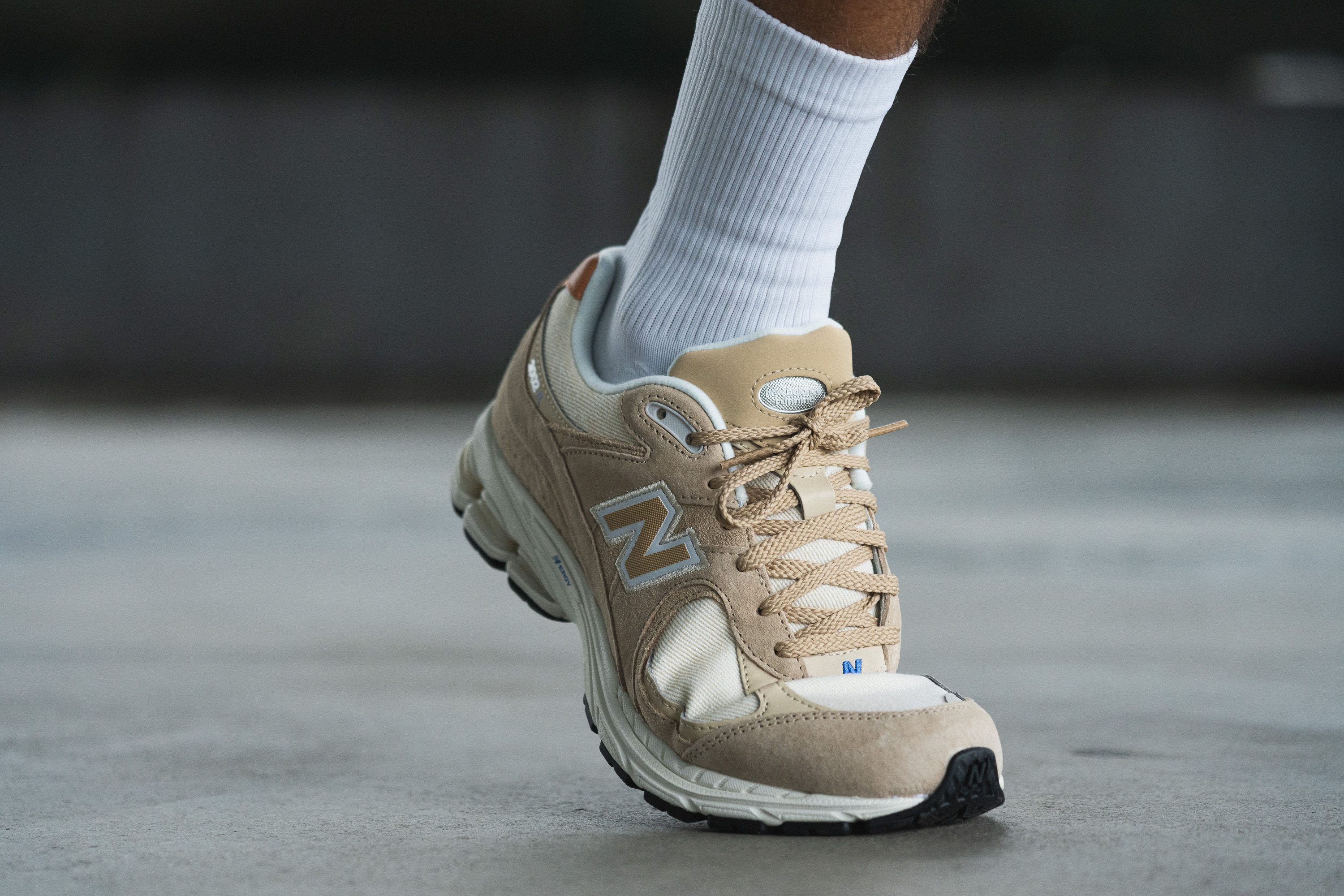
We believe New Balance tried really hard in this one, and it shows! To keep it comfortable despite its stiffer midsole and upper, the shoe bends with your feet when you walk around.
We're speechless, no kidding. When we thought the 2002R couldn't turn the tables any more, it decided to flip them!
| 2002R | 21.4N |
| Average | 23.0N |
Grip / Traction
Just like most sneakers, in order to keep the weight down but still be grippy, the 2002R doesn't have a full-length outsole.
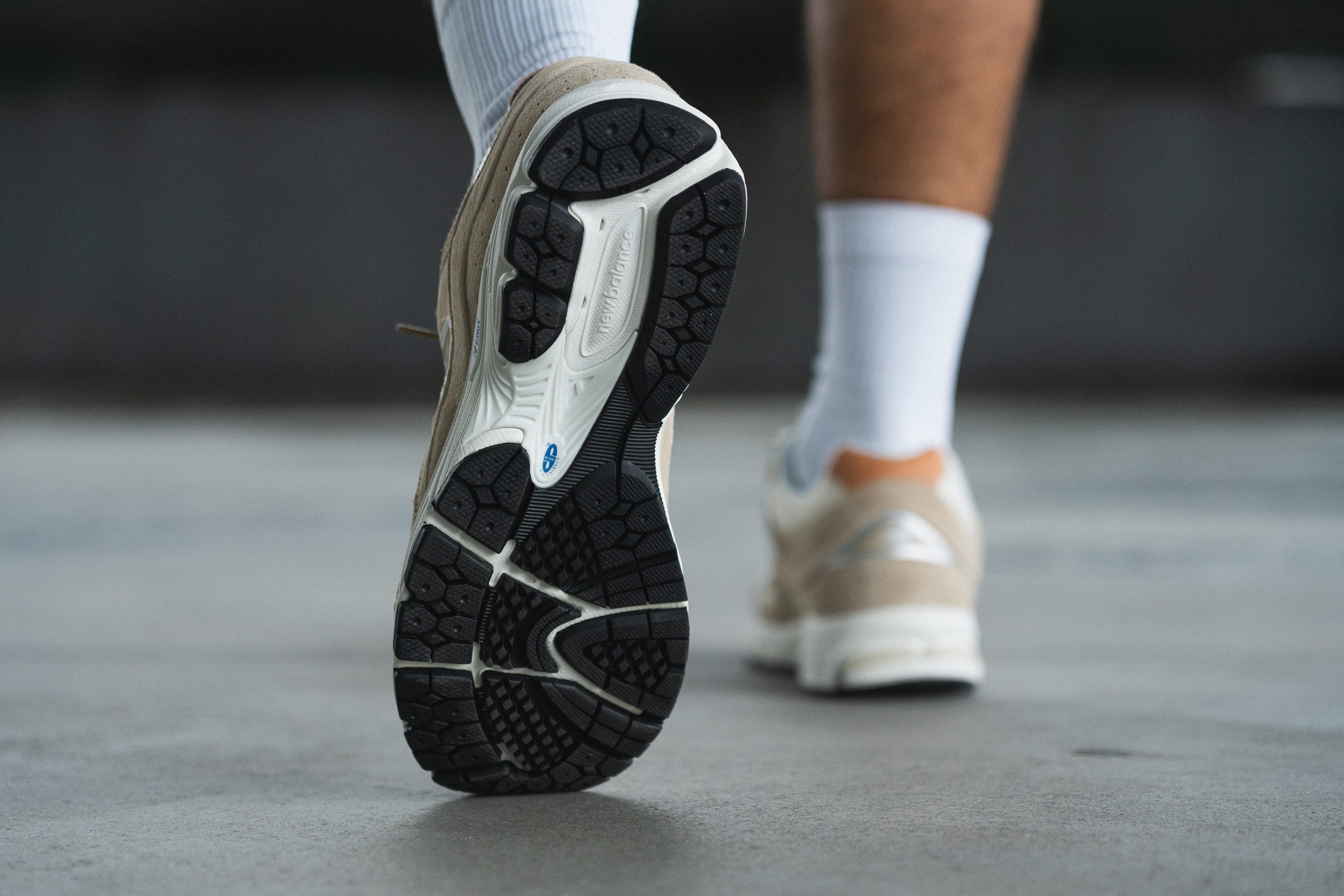
We can see two main flex grooves (the lines in white) and small sections with different patterns, proving its heritage as a former running shoe. Even though it seems to have a lot of gaps for movement, this barely adds any extra flexibility to an already quite rigid shoe.
That aside, it is a very grippy pair on most surfaces! And we LOVE it. Just forget about conquering ice and wet grass, though. We felt surefooted walking around town with it. But one of our favourite details is that, as you can see, the grooves are too small to actually catch any pebbles. Jackpot!!
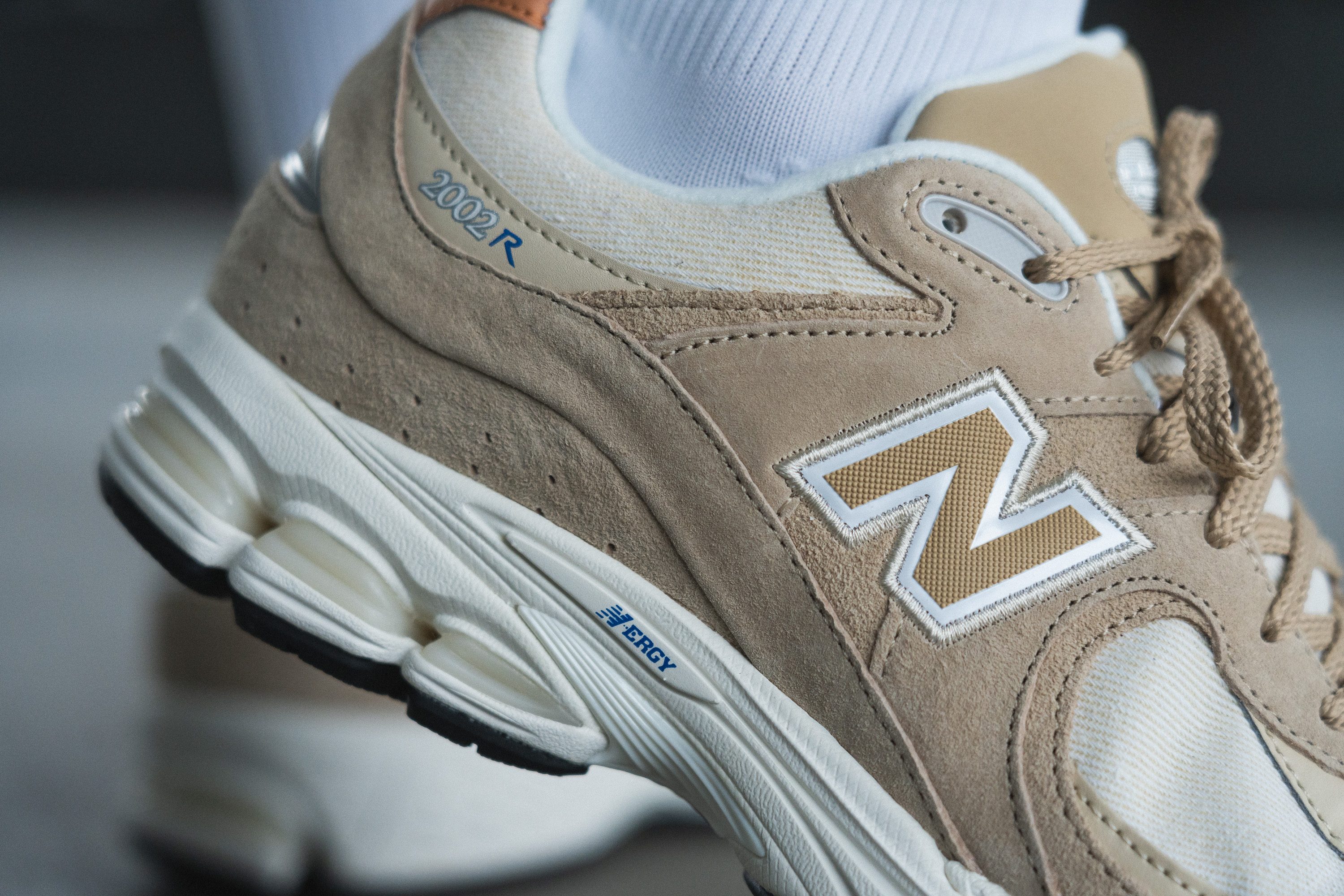
Its outsole features two technologies: the N-ergy one, providing superior shock absorption; and the Stability Web one, which offers added arch support.
As we've said before, it might not be the plushiest shoe on the market, but you'll feel confident in every step, just like we did!
Side note: Its outsole still has enough shock absorption for it to protect your joints from rough impacts!
Size and fit
Toebox width at the widest part
At 99.7 mm, the toebox width at the widest part of the 2002R is slightly wider than average.
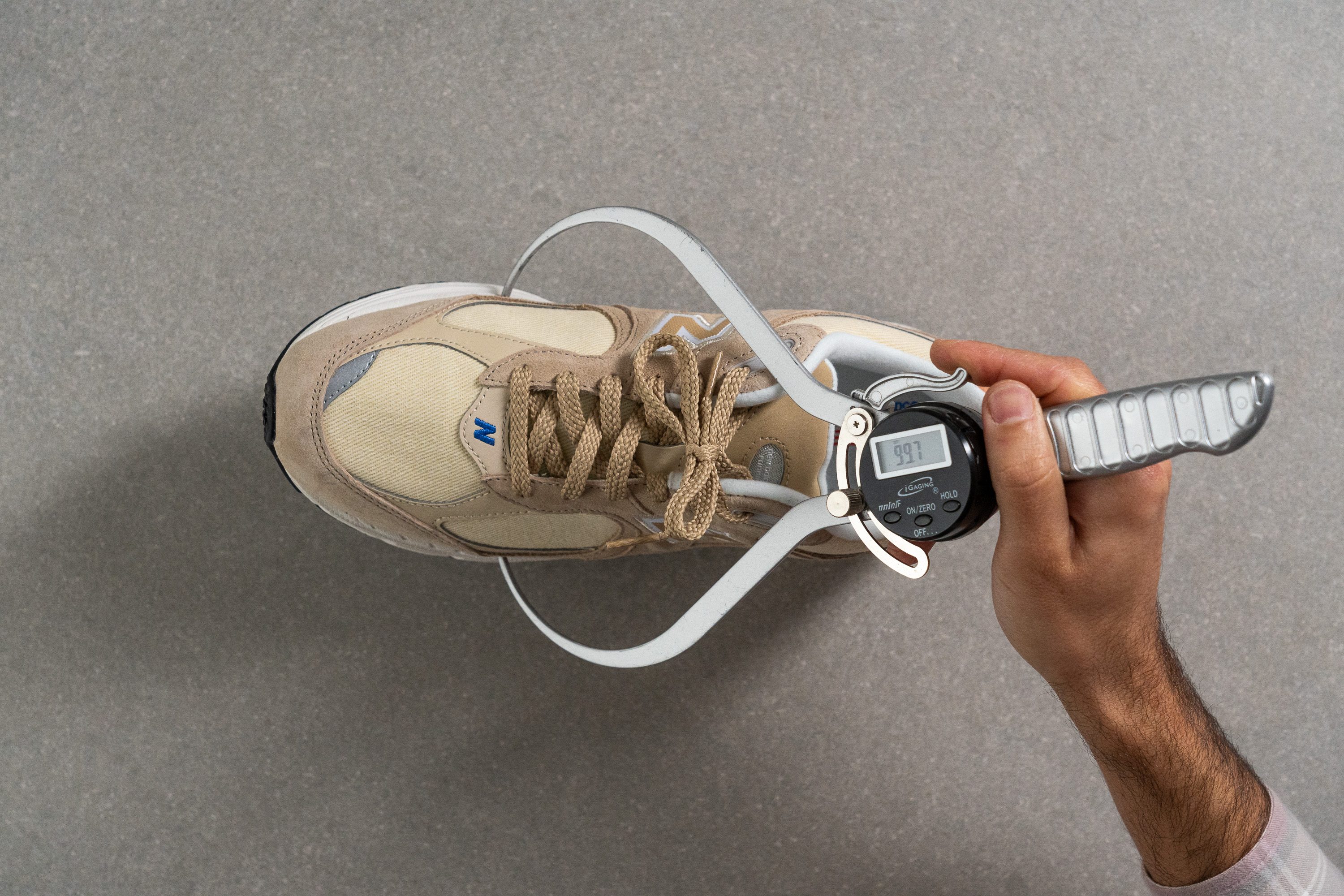
This might sound promising, but after learning about this model's design and fit, being around 1 mm wider than average is not enough to actually accommodate big-toed sneakerheads.
| 2002R | 99.7 mm |
| Average | 98.8 mm |
Toebox width at the big toe
Just by looking at it, you can already tell this New Balance becomes narrower towards the toecap.
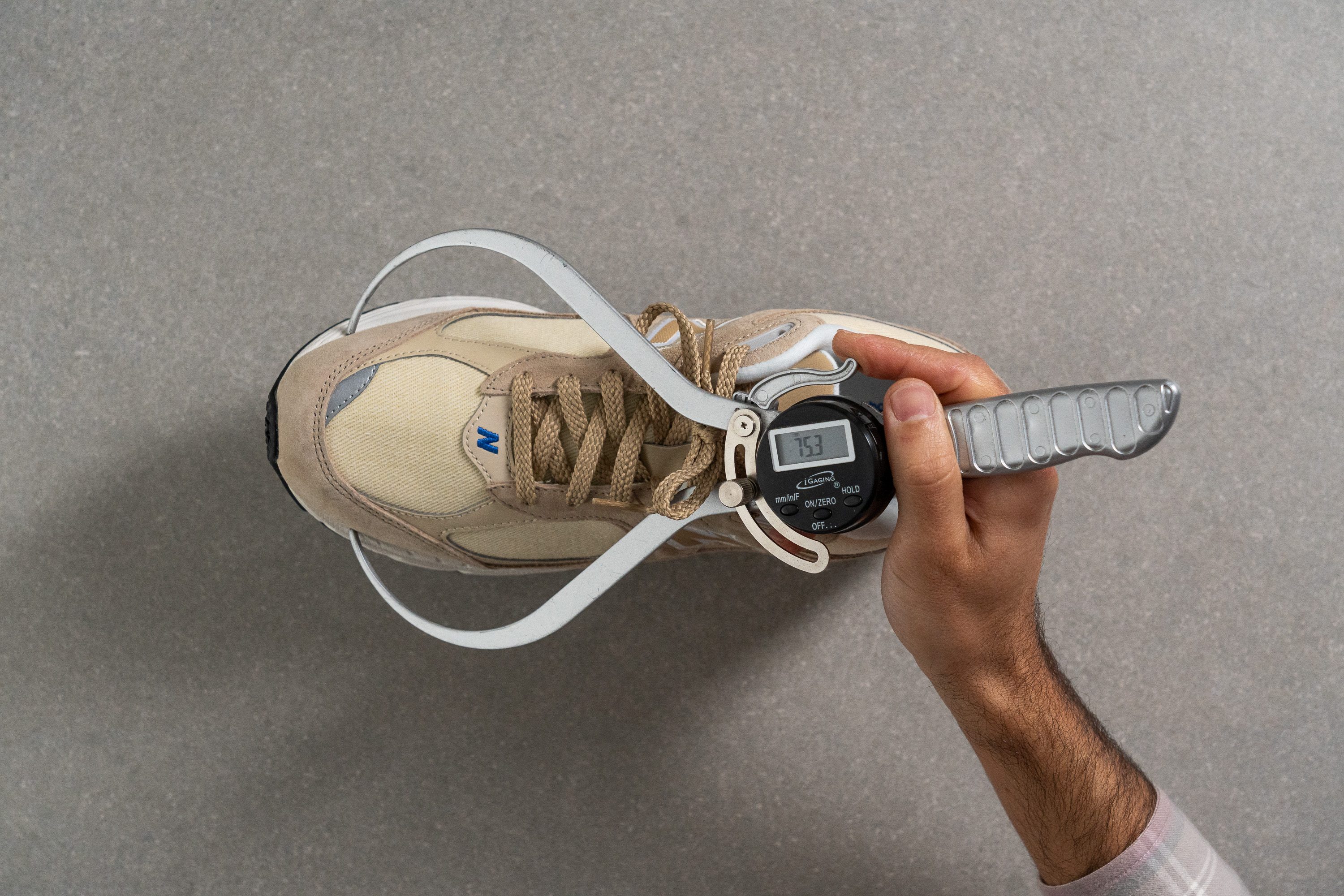
At 75.3 mm, we can't say our standard-width feet felt uncomfortable. The 2002R has a snug fit, but not too tight for us to feel constrained. Nevertheless, the testers among us with wide feet admitted they wouldn't want to wear this shoe for long.
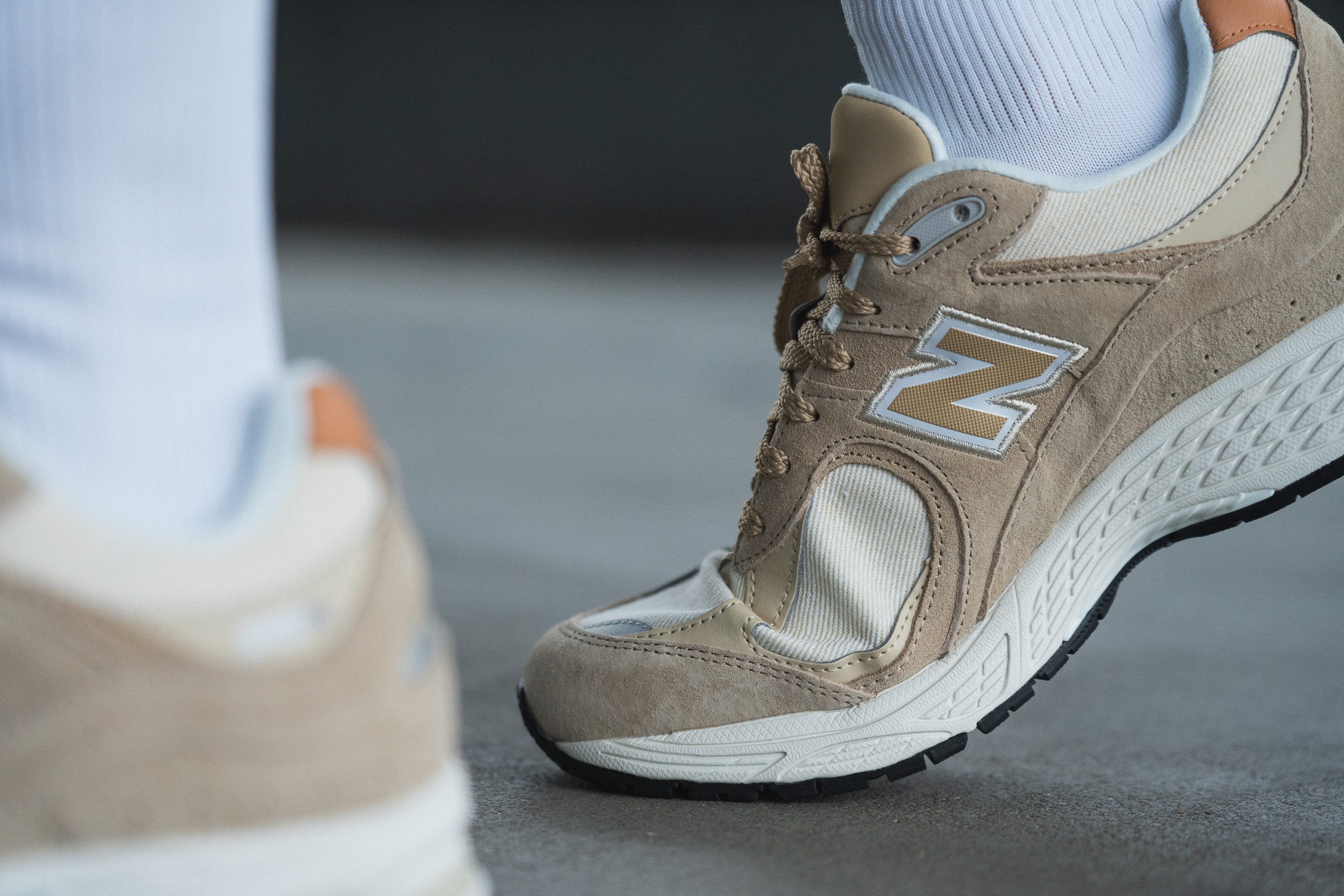
Like, it's not Nike we're talking about, so it's not that the toebox is going to squeeze your toes. But they won't have enough space to move around or spread. Keep it in mind!
If you're looking for a more roomy pair, we believe you should go for the New Balance 574, which is not only wider than most sneakers at the big toe, but also available in wide and extra wide!
| 2002R | 75.3 mm |
| Average | 74.7 mm |
Tongue: gusset type
The 2002R's tongue is non-gusseted. Look at the picture below; see there's nothing holding the tongue close to the sides?
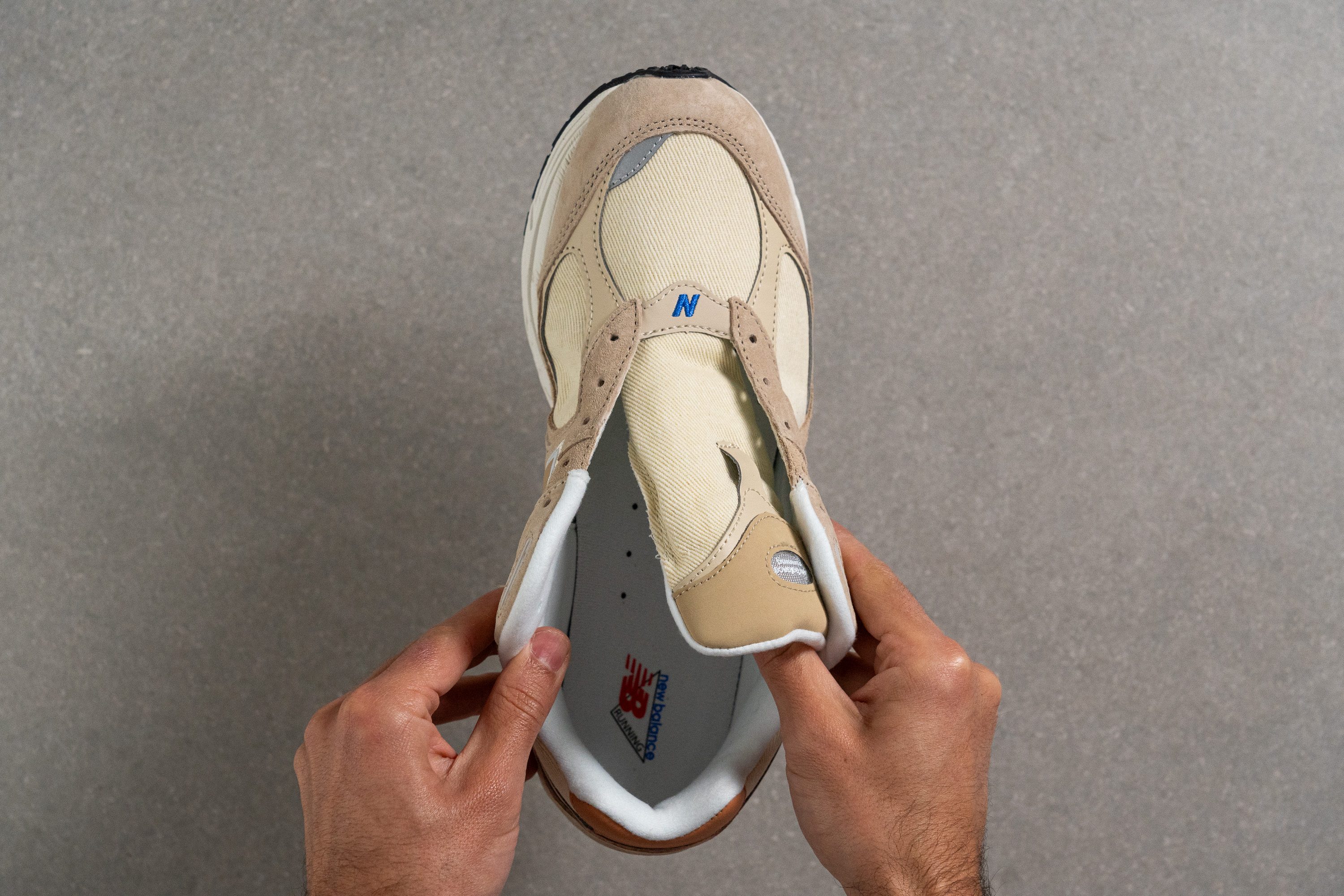
This might mean that the tongue moves around or scrunches a little. But not this one! With the loop it has right in the middle, the laces keep it in place. We thought this was a wonderful detail, as it improved our whole walking experience.
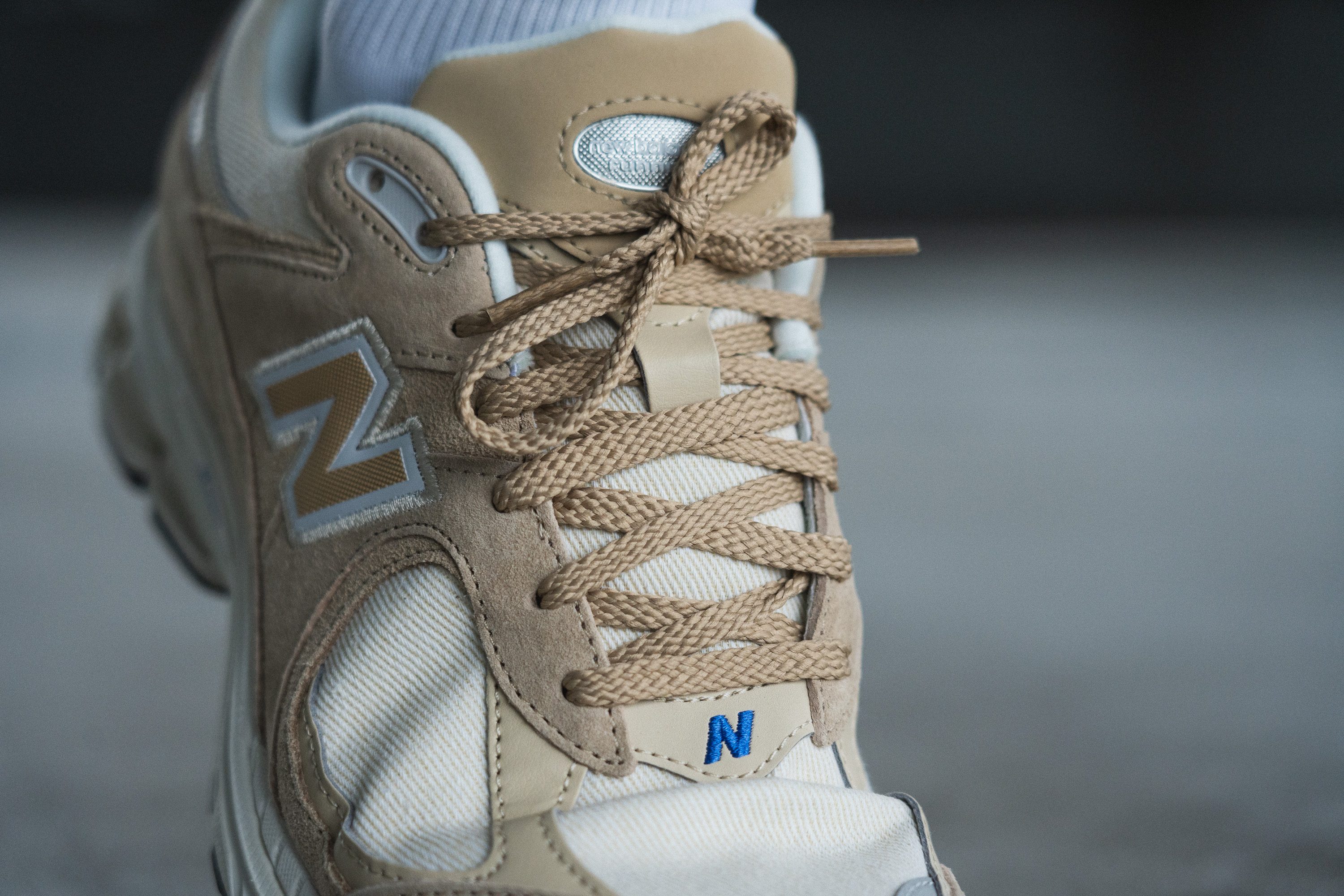
Who likes to walk around having to readjust the shoe's tongue? Because we sure don't! It's annoying, and if you have back problems or you're an old person, it gets even worse!
So yeah, thank you again, New Balance!
PS: That blue N detail is just perfect. Absolutely perfect!
| 2002R | None |
Comfort
Tongue padding
You're not gonna believe this. Not even the invisibility cloak could possibly hide this tongue!
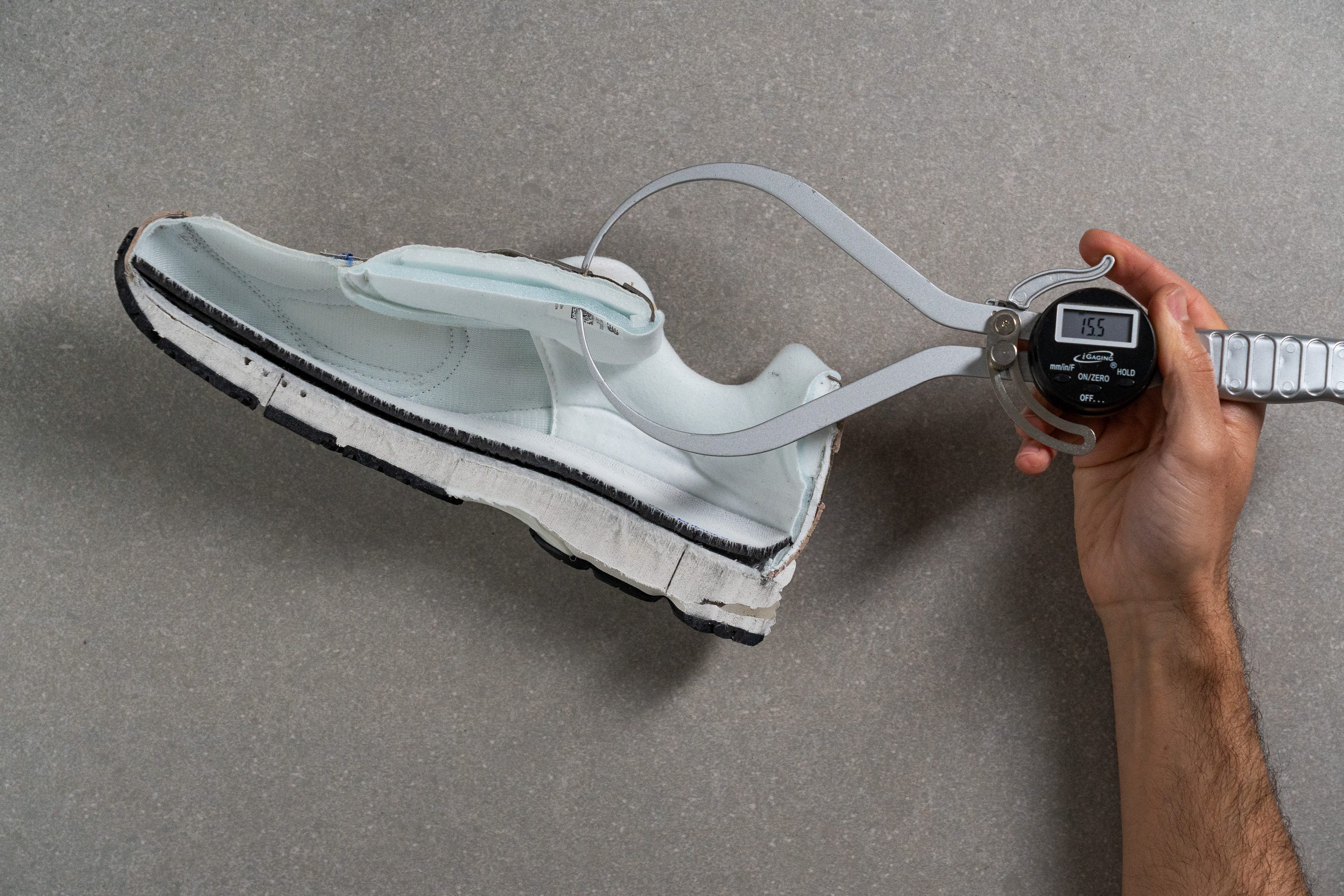
At 15.5 mm, this is one of the most padded tongues we've ever seen in our lab (no, Adidas Campus 00S, don't worry, nobody is taking that throne from you and your 23.0 mm of tongue padding).
The interiors of this pair are plush only in key areas, especially in the collar, in order to keep its weight down but guarantee a comfy interior. With already a snug fit, we believe the brand could have used a little less padding in the tongue and reduce some weight.
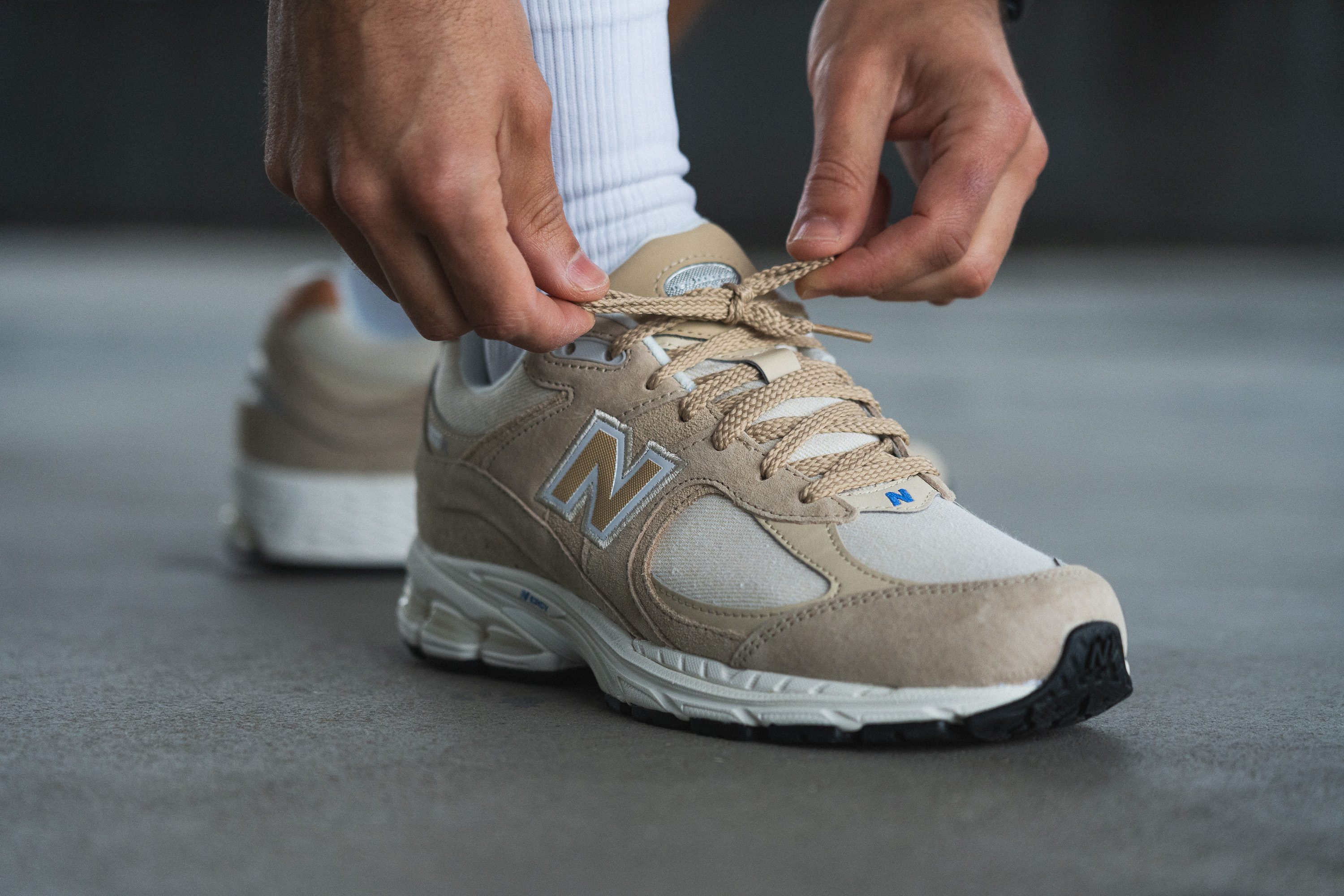
Still, this pair tries hard to make your feet stay where they should, so some extra padding (plus the traditional lacing system) always helps! Needless to say, there was no lace bite and no painful rubs in our walks!
| 2002R | 15.5 mm |
| Average | 9.1 mm |
Heel tab
This shoe doesn't have a heel tab. But honestly, many models of this brand don't have one (yes, yes, 1906R and 530, we know you both are exceptions!).
It would have certainly helped to put one on this shoe and its stiff structure, though. But we gotta admit that we really liked the design choice New Balance went for. Additionally, as that orange detail you can see in the picture kind of lightly splits into two, it feels like the heel is hugging our Achilles tendon saying: "I got you, pal!".
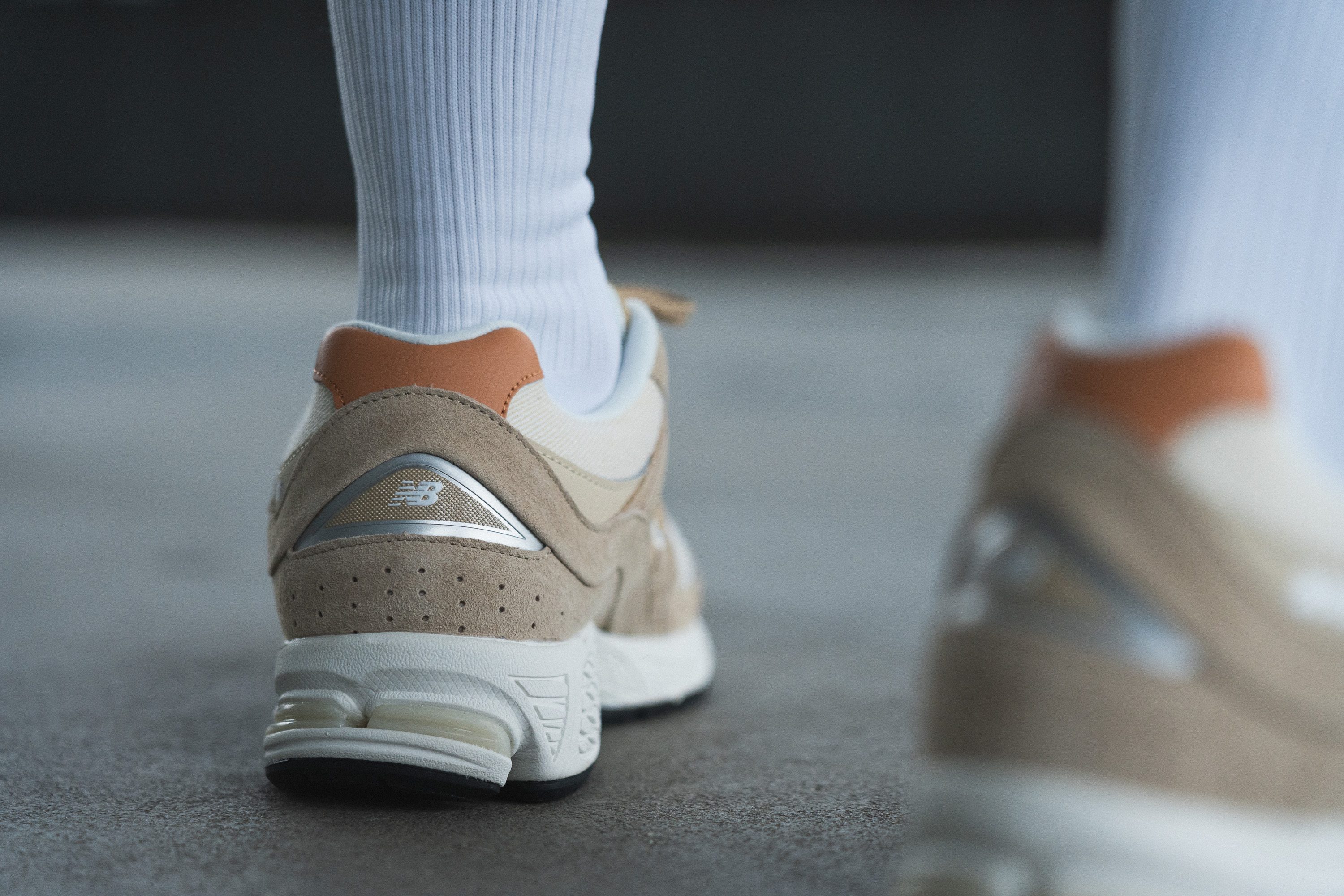
So, apart from being cool, it's functional! During our walking tests, we felt surefooted and safe.
Should we ask NB to change the name of this pair and call it 2002S from Stability?
| 2002R | None |
Removable insole
There's one thing that we can all agree on: New Balance's insoles are THE BEST! They are made with arch support in mind, so most feet love them.
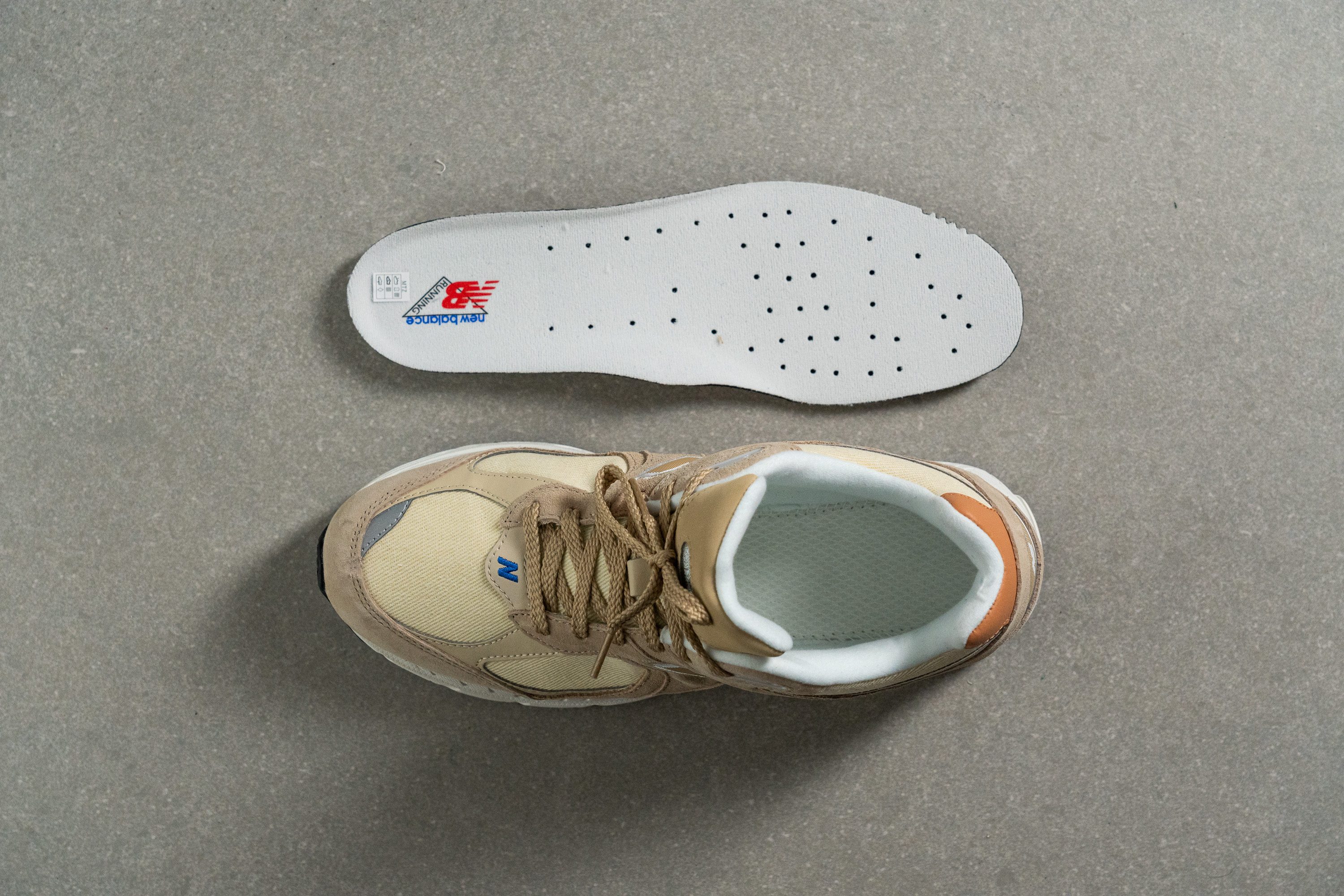
Still, if you need to use your own orthotics, there's no problem. This model's insole is removable!
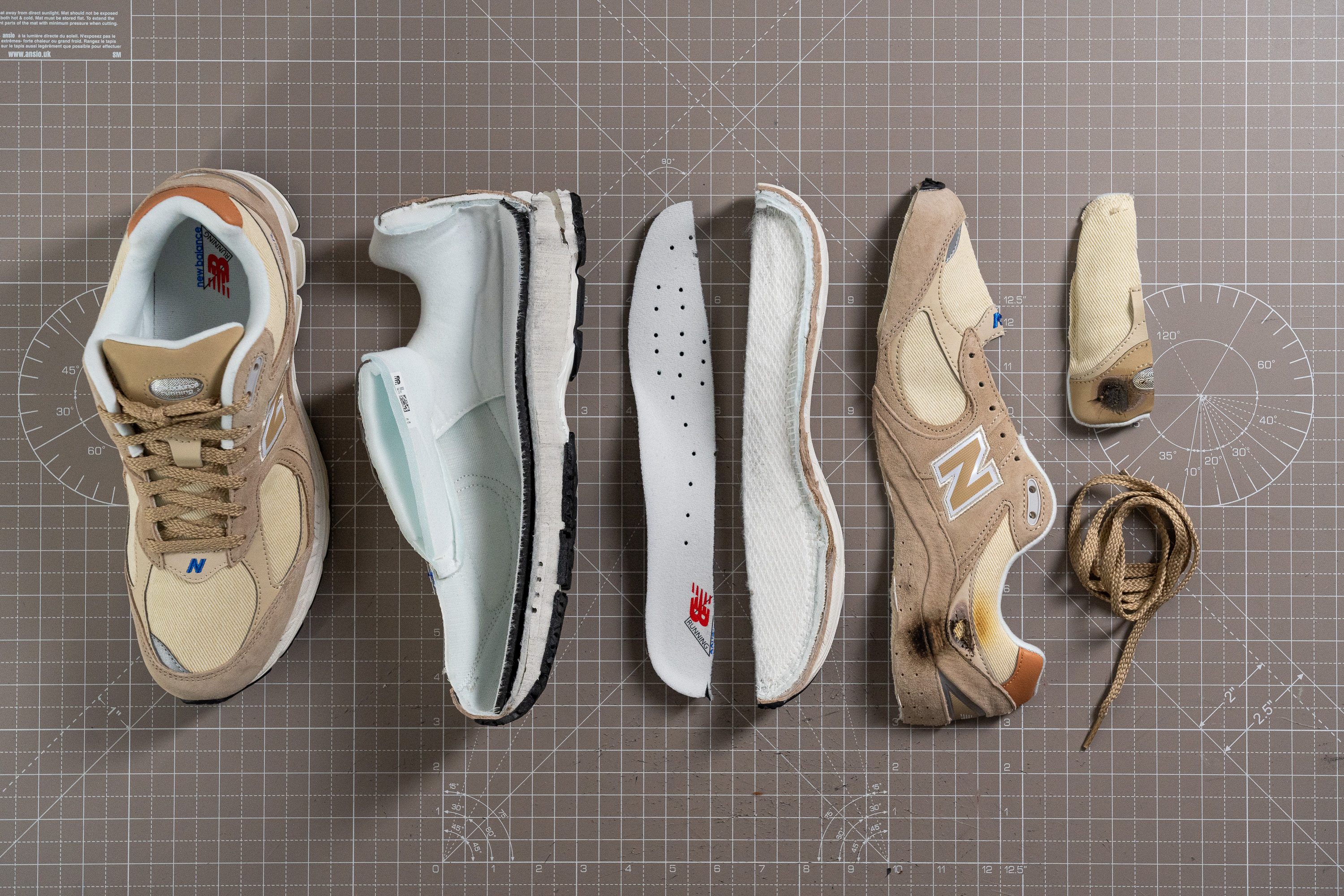
| 2002R | Yes |
Misc
Reflective elements
If you walk alone at night, make sure you don't get into dark alleys... this shoe only has one reflective detail!
Even though we found it pretty cool and original, it's definitely not enough to be visible at night.
| 2002R | Yes |

